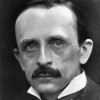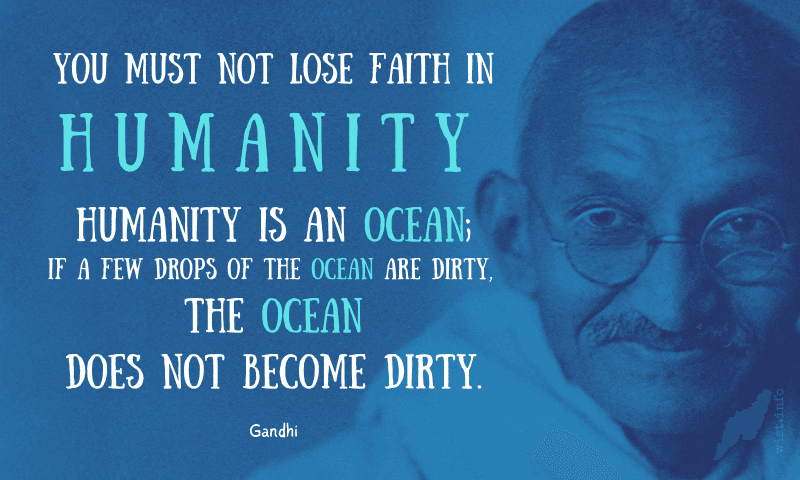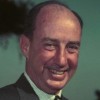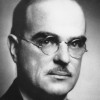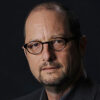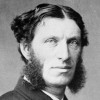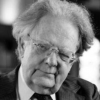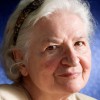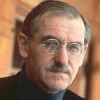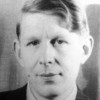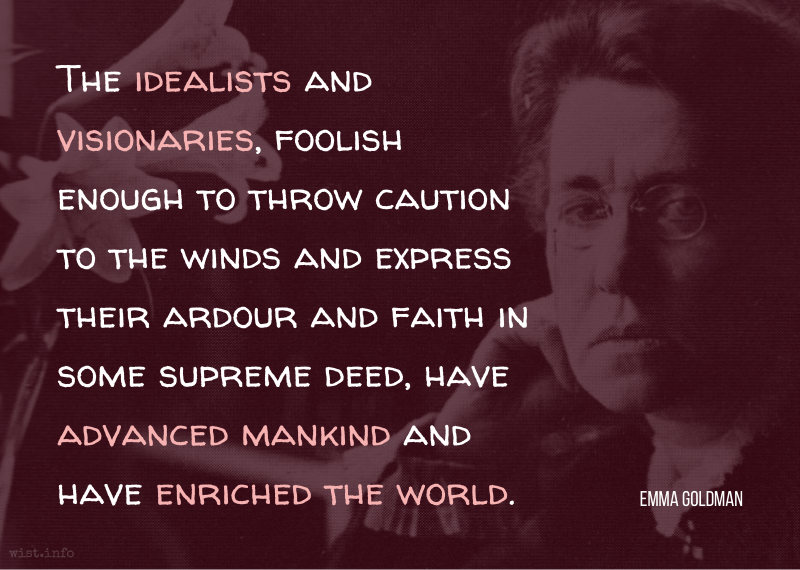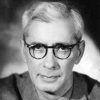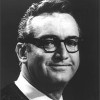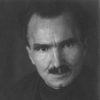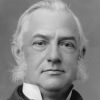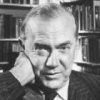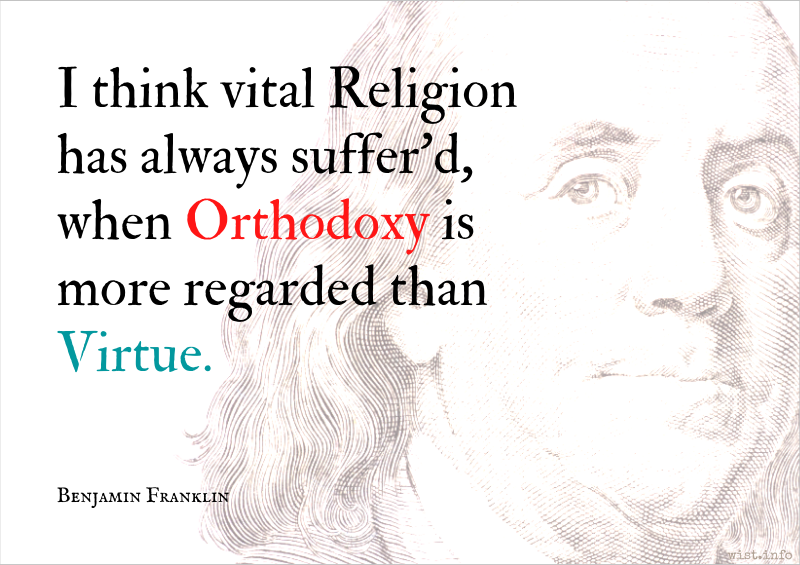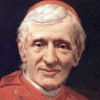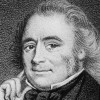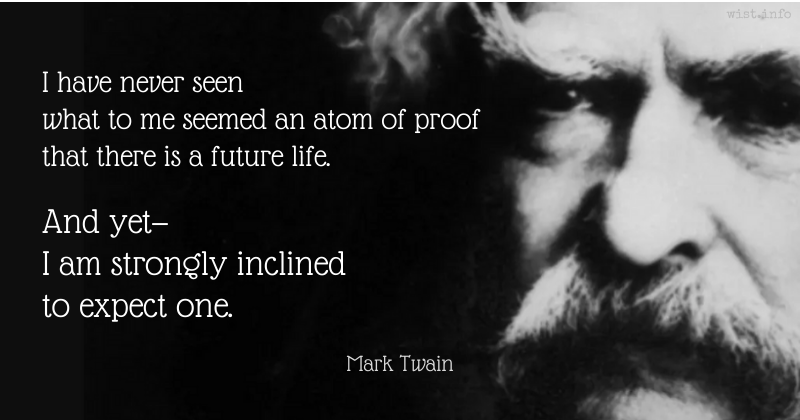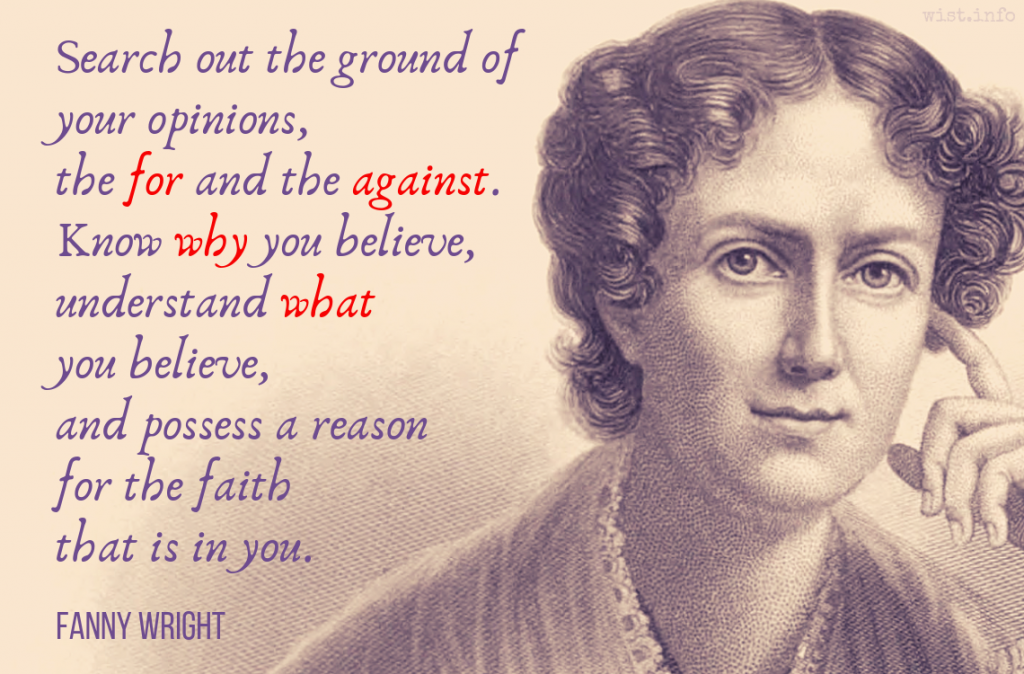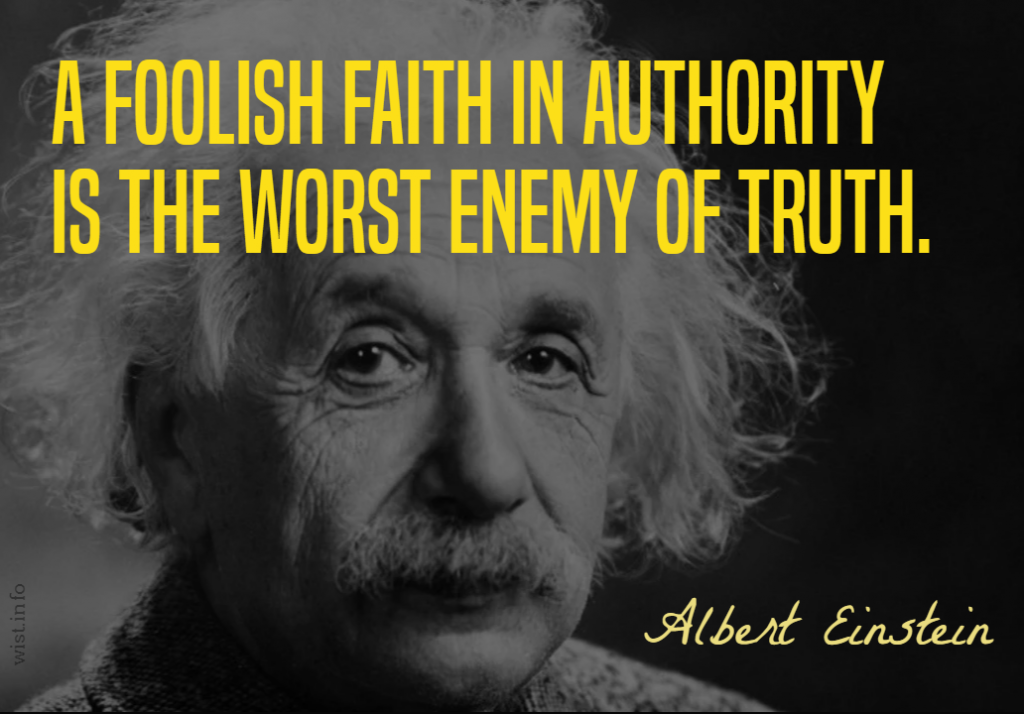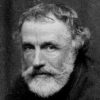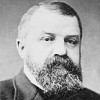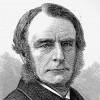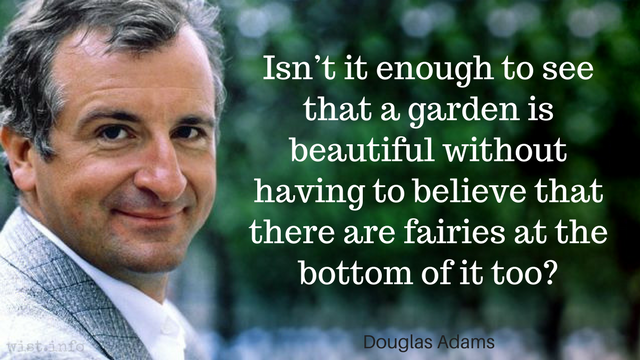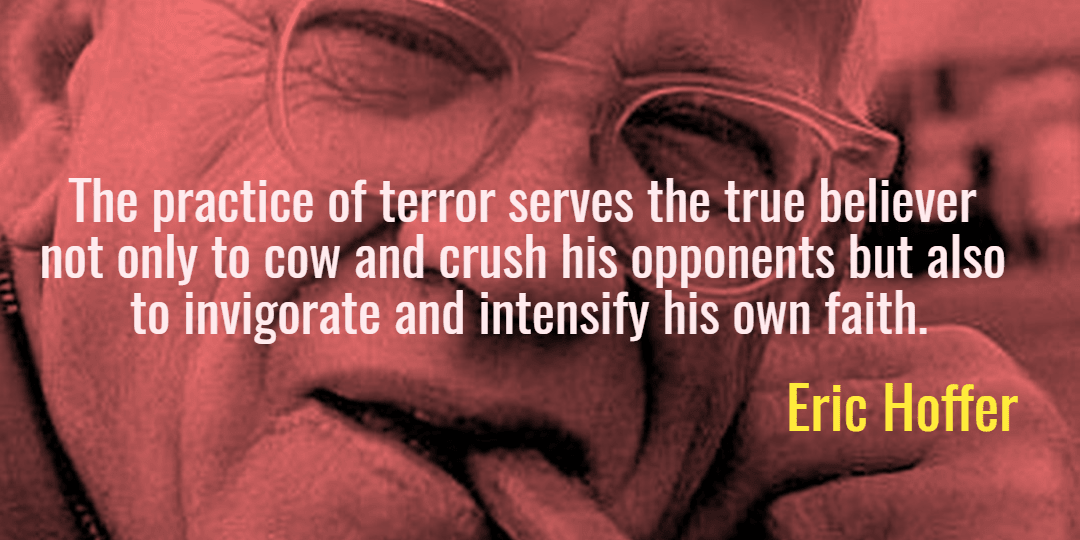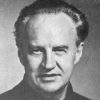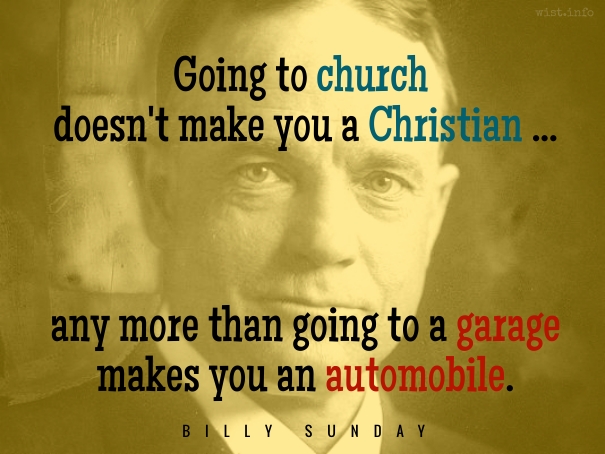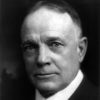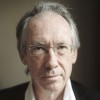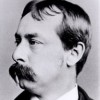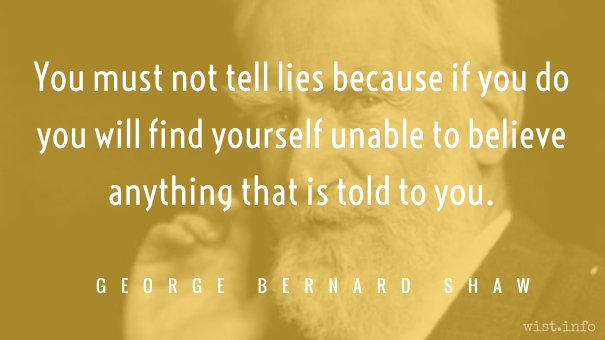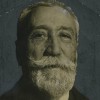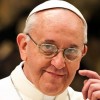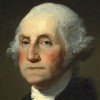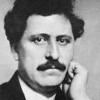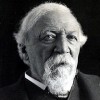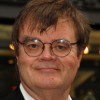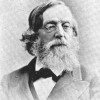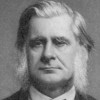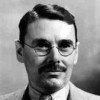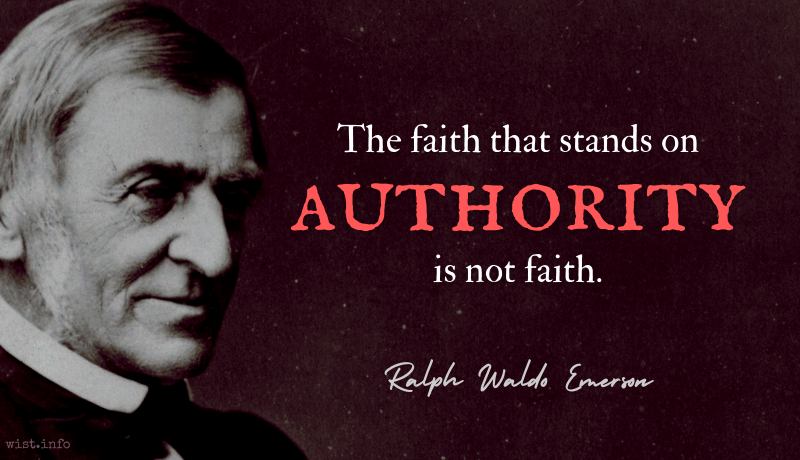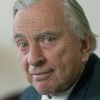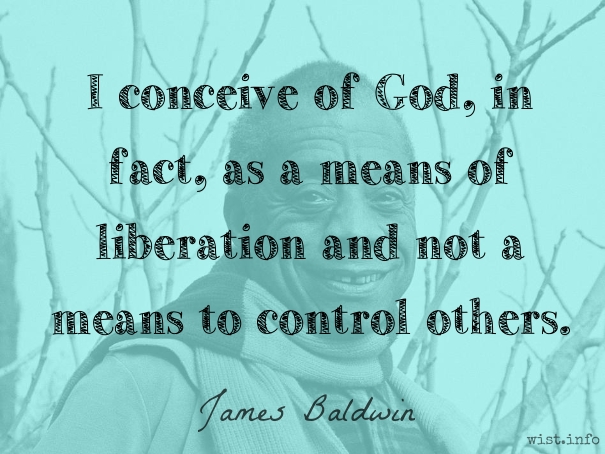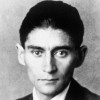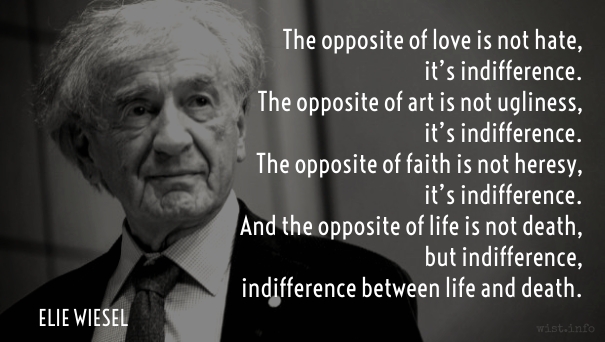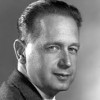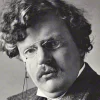To know a person’s religion we need not listen to his profession of faith but must find his brand of intolerance.
Eric Hoffer (1902-1983) American writer, philosopher, longshoreman
Passionate State of Mind, Aphorism 215 (1955)
(Source)
Quotations about:
faith
Note not all quotations have been tagged, so Search may find additional quotes on this topic.
It is well said, in every sense, that a man’s religion is the chief fact with regard to him. A man’s, or a nation of men’s. By religion I do not mean here the church-creed which he professes, the articles of faith which he will sign and, in words or otherwise, assert; not this wholly, in many cases not this at all. We see men of all kinds of professed creeds attain to almost all degrees of worth or worthlessness under each or any of them. This is not what I call religion, this profession and assertion; which is often only a profession and assertion from the outworks of the man, from the mere argumentative region of him, if even so deep as that.
But the thing a man does practically believe (and this is often enough without asserting it even to himself, much less to others); the thing a man does practically lay to heart, and know for certain, concerning his vital relations to this mysterious Universe, and his duty and destiny there, that is in all cases the primary thing for him, and creatively determines all the rest. That is his religion; or, it may be, his mere scepticism and no-religion: the manner it is in which he feels himself to be spiritually related to the Unseen World or No-World; and I say, if you tell me what that is, you tell me to a very great extent what the man is, what the kind of things he will do is.Thomas Carlyle (1795-1881) Scottish essayist and historian
Lecture (1840-05-05), “The Hero as Divinity,” Home House, Portman Square, London
(Source)
The lecture notes were collected by Carlyle into On Heroes, Hero-Worship, & the Heroic in History, Lecture 1, (1841).
Hope is the boy, a blind, headlong, pleasant fellow, good to chase swallows with the salt; Faith is the grave, experienced, yet smiling man. Hope lives on ignorance; open-eyed Faith is built upon a knowledge of our life, of the tyranny of circumstance and the frailty of human resolution. Hope looks for unqualified success; but Faith counts certainly on failure, and takes honourable defeat to be a form of victory. Hope is a kind old pagan; but Faith grew up in Christian days, and early learnt humility.
In the one temper, a man is indignant that he cannot spring up in a clap to heights of elegance and virtue; in the other, out of a sense of his infirmities, he is filled with confidence because a year has come and gone, and he has still preserved some rags of honour. In the first, he expects an angel for a wife; in the last, he knows that she is like himself — erring, thoughtless, and untrue; but like himself also, filled with a struggling radiancy of better things, and adorned with ineffective qualities.Robert Louis Stevenson (1850-1894) Scottish essayist, novelist, poet
Essay (1881), “Virginibus Puerisque, Part 2”
(Source)
First published in Virginibus Puerisque and Other Papers, ch. 1, part 2 (1881).
Hope, in this deep and powerful sense, is not the same as joy that things are going well, or willingness to invest in enterprises that are obviously headed for early success, but, rather, an ability to work for something because it is good, not just because it stands a chance to succeed. The more unpropitious the situation in which we demonstrate hope, the deeper that hope is. Hope is definitely not the same thing as optimism. It is not the conviction that something will turn out well, but the certainty that something makes sense, regardless of how it turns out.
Václav Havel (1936-2011) Czech playwright, essayist, dissident, politician
Disturbing the Peace: A Conversation with Karel Hvížďala, ch. 5 “The Politics of Hope” (1986) [tr. Wilson (1990)]
(Source)
The last two sentences are usually combined as:Hope is not the conviction that something will turn out well, but the certainty that something makes sense, regardless of how it turns out.
Variant:Hope is not the conviction that something will turn out well, but the certainty that something is worth doing no matter how it turns out.
Now faith is the substance of things hoped for, the evidence of things not seen.
[Ἔστιν δὲ πίστις ἐλπιζομένων ὑπόστασις, πραγμάτων ἔλεγχος οὐ βλεπομένων.]
The Bible (The New Testament) (AD 1st - 2nd C) Christian sacred scripture
Hebrews 11. 1 [KJV (1611)]
(Source)
(Source (Greek)). Alternate translations:Only faith can guarantee the blessings that we hope for, or prove the existence of the realities that at present remain unseen.
[JB (1966)]Only faith can guarantee the blessings that we hope for, or prove the existence of realities that are unseen.
[NJB (1985)]To have faith is to be sure of the things we hope for, to be certain of the things we cannot see.
[GNT (1992 ed.)]Faith is the reality of what we hope for, the proof of what we don’t see.
[CEB (2011)]Now faith is the assurance of things hoped for, the conviction of things not seen.
[NRSV (2021 ed.)]
SGANARELLE: But one has to believe in something; what is it that you believe? […]
DON JUAN: I believe that two and two are four, Sganarelle, and that four and four are eight.
[SGANARELLE: Mais encore faut-il croire en quelque chose dans le monde : qu’est-ce donc que vous croyez? […]
DON JUAN: Je crois que deux et deux sont quatre, Sganarelle, et que quatre et quatre sont huit.]
Molière (1622-1673) French playwright, actor [stage name for Jean-Baptiste Poquelin]
Don Juan [Dom Juan], Act 3, sc. 1 (1665) [tr. Wilbur (2001)]
(Source)
This passage, where belief in folk spirits and bogeymen (or, alternately, math) is conflated with religious belief, was dropped from later performances, and is sometimes not included in text versions of the play (e.g., Clitandre (1672)).
(Source (French)). Other translations:SGAN: People must believe something in this world. What do you believe? [...]
D JU: I believe that two and two are four, Sganarelle, and that twice four are eight.
[tr. Van Laun (1876)]SGAN: One must believe in something here below. What do you believe in? [...]
JU: Well, I believe that two and two make four, Sganarelle, and that four and four make eight.
[tr. Wall (1879)]SGAN: Now just tell me (for one must believe something) in what do you believe? [...]
D. JUAN: I believe two and two make four, Sganarelle, and that four and four are eight.
[tr. Waller (1904)]SGANARELLE: But at least a man must believe in something here below. Now what do you believe in? [...]
DON JUAN: I believe that two and two make four, Sganarelle, and that twice four is eight.
[tr. Page (1908)]SGANARELLE: A person must have faith in something. What do you believe? [...]
DON JUAN: I believe, Sganarelle, that two and two are four and four and four are eight.
[tr. Bermel (1987)]
Temperance and abstinence, faith and devotion, are in themselves perhaps as laudable as any other virtues; but those which make a man popular and beloved are justice, charity, munificence, and, in short, all the good qualities which render us beneficial to each other.
Joseph Addison (1672-1719) English essayist, poet, statesman
Essay (1711-12-08), The Spectator, No. 243
(Source)
The boldest thinker may have his moments of languor and discouragement, when he feels as if he could willingly exchange faiths with the old beldame crossing herself at the cathedral-door, — nay, that, if he could drop all coherent thought, and lie in the flowery meadow with the brown-eyed solemnly unthinking cattle, looking up to the sky, and all their simple consciousness staining itself blue, then down to the grass, and life turning to a mere greenness, blended with confused scents of herbs, — no individual mind-movement such as men are teased with, but the great calm cattle-sense of all time and all places that know the milky smell of herds, — if he could be like these, he would be content to be driven home by the cow-boy, and share the grassy banquet of the king of ancient Babylon. Let us be very generous, then, in our judgment of those who leave the front ranks of thought for the company of the meek non-combatants who follow with the baggage and provisions. Age, illness, too much wear and tear, a half-formed paralysis, may bring any of us to this pass.
CLÉANTE: And just as there is nothing I more revere
Than a soul whose faith is steadfast and sincere,
Nothing that I more cherish and admire
Than honest zeal and true religious fire,
So there is nothing that I find more base
Than specious piety’s dishonest face.[Et, comme je ne vois nul genre de héros
Qui soient plus à priser que les parfaits dévots,
Aucune chose au monde et plus noble et plus belle
Que la sainte ferveur d’un véritable zèle,
Aussi ne vois-je rien qui soit plus odieux
Que le dehors plâtré d’un zèle spécieux.]Molière (1622-1673) French playwright, actor [stage name for Jean-Baptiste Poquelin]
Tartuffe, or the Hypocrite [Le Tartuffe, ou L’Imposteur], Act 1, sc. 6 (1669) [tr. Wilbur (1963), 1.5]
(Source)
The references to plaster, whitewashing, etc., come from the Bible, Matthew 23:27-28, condemning hypocrisy.
(Source (French)). Alternate translations:And as I see no Character in Life more great or valuable than to be truly devout, nor any thing more noble, or more beautiful, than the Fervor of a sincere Piety; so I think nothing more abominable than the outside Daubing of a pretended Zeal.
[tr. Clitandre (1672)]And as I know no character more worthy of esteem than the truly devout, nor anything in the world more noble or beautiful than the holy fervour of sincere piety, so I know nothing more odious than the whited sepulchre of a pretended zealot, than those downright imposters, those devotees for public show.
[tr. Van Laun (1876)]And as I know nothing in the world so noble and so beautiful as the holy fervour of genuine piety, so there is nothing, I think, so odious as the whitewashed outside of a specious zeal.
[tr. Wall (1879)]And as I see nothing in life more noble or beautiful than the fervour of sincere piety, so I think nothing more odious than the plastered exterior of a false zeal.
[tr. Mathew (1890)]And since I do not know any character more admirable than the truly devout, nor anything in the world more noble and more beautiful than the righteous fervor of a sincere piety, neither do I know anything more odious than the whited sepulchre of a specious zeal.
[tr. Waller (1903)]And as I find no kind of hero more
To be admired than men of true religion,
Nothing more noble or more beautiful
Than is the holy zeal of true devoutness;
Just so I think there's naught more odious
Than whited sepulchres of outward unction.
[tr. Page (1909)]And as I see no kind of character
More honorable than true devotion is,
Nothing more noble and more beautiful
Than fervent, genuine, holy piety,
So I find nothing on earth more odious
Than the false show of whited sepulchres.
[tr. Bishop (1957)]And, as there are no heroes I revere
More than those whose devoutness is sincere,
And nothing worthier of veneration
Than genuine religious dedication,
So, nothing seems more odious to me
Than the disguise of specious piety.
[tr. Frame (1967)]What jewel more precious can there be
Than perfect, unfeigned piety,
A fervour that is felt, and real?
But this ... this squashed flea kind of zeal,
Worn, as a lady wears her paint,
The posturing of the plaster saint,
This, above all things, I deplore.
Nothing on earth disgusts me more.
[tr. Bolt (2002)]I don’t know any heroes more worthy of respect than the truly pious or anything more noble and beautiful than holy passion and saintly zeal. And I don’t know anything more hateful than those whited sepulchres, the phony zealots.
[tr. Steiner (2008)]
And others are those sown among the thorns: these are the ones who hear the word, but the cares of the age and the lure of wealth and the desire for other things come in and choke the word, and it yields nothing.
[καὶ ἄλλοι εἰσὶν οἱ εἰς τὰς ἀκάνθας σπειρόμενοι· οὗτοί εἰσιν οἱ τὸν λόγον ἀκούσαντες, καὶ αἱ μέριμναι τοῦ αἰῶνος καὶ ἡ ἀπάτη τοῦ πλούτου καὶ αἱ περὶ τὰ λοιπὰ ἐπιθυμίαι εἰσπορευόμεναι συμπνίγουσιν τὸν λόγον καὶ ἄκαρπος γίνεται.]
The Bible (The New Testament) (AD 1st - 2nd C) Christian sacred scripture
Mark 4: 18-19 (Jesus) [NRSV (2021 ed.)]
(Source)
Part of the Parable of the Sower. This passage is paralleled in Matthew 13:22 and Luke 8:14.
(Source (Greek)). Alternate translations:And these are they which are sown among thorns; such as hear the word, and the cares of this world, and the deceitfulness of riches, and the lusts of other things entering in, choke the word, and it becometh unfruitful.
[KJV (1611)]Then there are others who receive the seed in thorns. These have heard the word, but the worries of this world, the lure of riches and all the other passions come in to choke the word, and so it produces nothing.
[JB (1966)]Other people are like the seeds sown among the thorn bushes. These are the ones who hear the message, but the worries about this life, the love for riches, and all other kinds of desires crowd in and choke the message, and they don't bear fruit.
[GNT (1966)]Then there are others who are sown in thorns. These have heard the word, but the worries of the world, the lure of riches and all the other passions come in to choke the word, and so it produces nothing.
[NJB (1985)]Others are like the seed scattered among the thorny plants. These are the ones who have heard the word; but the worries of this life, the false appeal of wealth, and the desire for more things break in and choke the word, and it bears no fruit.
[CEB (2011)]
The real Bible is not the work of inspired men, nor prophets, nor apostles, nor evangelists, nor of Christs. Every man who finds a fact, adds, as it were, a word to this great book. It is not attested by prophecy, by miracles or signs. It makes no appeal to faith, to ignorance, to credulity or fear. It has no punishment for unbelief, and no reward for hypocrisy. It appeals to man in the name of demonstration. It has nothing to conceal. It has no fear of being read, of being contradicted, of being investigated and understood. It does not pretend to be holy, or sacred; it simply claims to be true. It challenges the scrutiny of all, and implores every reader to verify every line for himself. It is incapable of being blasphemed.
Robert Green Ingersoll (1833-1899) American lawyer, freethinker, orator
Lecture (1874-05-03), “Heretics and Heresies,” Free Religious Society, Kingsbury Hall, Chicago
(Source)
Collected in The Gods and Other Lectures (1876).
PETER: Her light is growing faint, and if it goes out, that means she is dead! Her voice is so low I can scarcely tell what she is saying. She says — she says she thinks she could get well again if children believed in fairies!
(He rises and throws out his arms he knows not to whom, perhaps to the boys and girls of whom he is not one.)
Do you believe in fairies? Say quick that you believe! If you believe, clap your hands!
(Many clap, some don’t, a few hiss. Then perhaps there is a rush of Nanas to the nurseries to see what on earth is happening. But TINK is saved.)
Oh, thank you, thank you, thank you! And now to rescue Wendy!
(TINK is already as merry and impudent as a grig, with not a thought for those who have saved her.J. M. Barrie (1860-1937) Scottish novelist and dramatist [James Matthew Barrie]
Peter Pan, Act 4 (1904, pub. 1928)
(Source)
In Barrie's 1911 novelization, Peter and Wendy, ch. 13 "Do You Believe in Fairies?" this is rendered:Every moment her light was growing fainter; and he knew that if it went out she would be no more. She liked his tears so much that she put out her beautiful finger and let them run over it. Her voice was so low that at first he could not make out what she said. Then he made it out. She was saying that she thought she could get well again if children believed in fairies.
Peter flung out his arms. There were no children there, and it was night time; but he addressed all who might be dreaming of the Neverland, and who were therefore nearer to him than you think: boys and girls in their nighties, and naked papooses in their baskets hung from trees.
“Do you believe?” he cried.
Tink sat up in bed almost briskly to listen to her fate.
She fancied she heard answers in the affirmative, and then again she wasn’t sure.
“What do you think?” she asked Peter.
“If you believe,” he shouted to them, “clap your hands; don’t let Tink die.”
Many clapped.
Some didn’t.
A few little beasts hissed.
The clapping stopped suddenly; as if countless mothers had rushed to their nurseries to see what on earth was happening; but already Tink was saved. First her voice grew strong, then she popped out of bed, then she was flashing through the room more merry and impudent than ever. She never thought of thanking those who believed, but she would have liked to get at the ones who had hissed.
Vehemence is the expression of a blind effort to support and uphold something that can never stand on its own — something rootless, incoherent, and incomplete. Whether it is our own meaningless self we are upholding or some doctrine devoid of evidence, we can do it only in a frenzy of faith.
Eric Hoffer (1902-1983) American writer, philosopher, longshoreman
Passionate State of Mind, Aphorism 60 (1955)
(Source)
I cannot say for sure when my reliable ideas about God began to slip away, but the big chest I used to keep them in is smaller than a shoebox now. Most of the time, I feel so ashamed about this that I do not own up to it unless someone else mentions it first. Then we find a quiet place where we can talk about what it is like to feel more and more devoted to a relationship that we are less and less able to say anything about.
Barbara Brown Taylor (b. 1951) American minister, academic, author
Learning to Walk in the Dark, ch. 7 (2014)
(Source)
You must not lose faith in humanity. Humanity is an ocean; if a few drops of the ocean are dirty, the ocean does not become dirty.
Mohandas Gandhi (1869-1948) Indian lawyer, anti-colonial nationalist, political ethicist [Mahatma Gandhi]
Letter (1947-08-29) to Rajkumari Amrit Kaur
(Source)
Quoted in Louis Fischer, Gandhi: His Life and Message for the World, ch. 31 (1954)
What religion a man shall have is a historical accident, quite as much as what language he shall speak. In the rare circumstances where a choice is possible, he may, with some difficulty, make an exchange; but even then he is only adopting a new convention which may be more agreeable to his personal temper but which is essentially as arbitrary as the old.
George Santayana (1863-1952) Spanish-American poet and philosopher [Jorge Agustín Nicolás Ruíz de Santayana y Borrás]
The Life of Reason, vol. 3 “Reason in Religion,” ch. 1 (1905)
(Source)
Hell is wherever Love is not, and Heaven
Is Love’s location. No dogmatic creed,
No austere faith based on ignoble fear
Can lead thee into realms of joy and peace.
Unless the humblest creatures on the earth
Are bettered by thy loving sympathy
Think not to find a Paradise beyond.There is no sudden entrance into Heaven.
Slow is the ascent by the path of Love.Ella Wheeler Wilcox (1850-1919) American author, poet, temperance advocate, spiritualist
Poem (1906), “The Way,” ll. 5-13, New Thought Pastels
(Source)
I once heard an orthodox person denouncing those who discuss articles of faith. “Gentlemen,” he said naïvely, “a true Christian does not examine what he is ordered to believe. Dogma is like a bitter pill: if you chew it, you will never be able to swallow it.”
[J’ai entendu un dévot, parlant contre des gens qui discutent des articles de foi, dire naïvement: «Messieurs, un vrai chrétien n’examine point ce qu’on lui ordonne de croire. Tenez, il en est de cela comme d’une pillule amère, si vous la mâchez, jamais vous ne pourrez l’avaler.»]
Nicolas Chamfort (1741-1794) French writer, epigrammist (b. Nicolas-Sébastien Roch)
Products of Perfected Civilization [Produits de la Civilisation Perfectionnée], Part 2 “Characters and Anecdotes [Caractères et Anecdotes],” ¶ 1148 (1795) [tr. Hutchinson (1902)]
(Source)
(Source (French)). Alternate translations:I heard one day a devotee, speaking against people who discuss articles of faith, say naivement: "Gentlemen, a true Christian never examines what he is ordered to believe. It is with that as with a bitter pill; if you chew it you will never be able to swallow it."
[tr. Mathews (1878)]I once heard a pious person say naively, in arguing with people who were discussing articles of faith, "Sirs, a true Christian does not examine what he is instructed to believe. You see, it's like a bitter pill -- if you chew it, you'll never be able to swallow it."
[tr. Dusinberre (1992), ¶1148]A devout and naïve Christian was admonishing those who questioned the articles of faith. "A true Christian must never examine the things he's told to believe, gentlemen," he said. "It's like taking a pill: if you chew it, it's so bitter you'll never get it down."
[tr. Parmée (2003), ¶363]
ORESTES: Otherwise how can we believe in the gods, if injustice can triumph over justice?
[ὈΡΈΣΤΗΣ:ἢ χρὴ μηκέθ᾽ ἡγεῖσθαι θεούς,
εἰ τἄδικ᾽ ἔσται τῆς δίκης ὑπέρτερα.]Euripides (485?-406? BC) Greek tragic dramatist
Electra [Ἠλέκτρα], l. 584ff (c. 420 BC) [tr. Theodoridis (2006)]
(Source)
(Source (Greek)). Alternate translations:Else shall we cease to think that any Gods
Exist, if Villainy prevail o'er Justice.
[tr. Wodhull (1809); Electra speaking]Else we must no longer believe in gods, if wrong is to be victorious over right.
[tr. Coleridge (1891)]It behooves one no longer to think that there are Gods, if unjust deeds get the advantage of justice.
[tr. Buckley (1892)]We must believe no more
In Gods, if wrong shall triumph over right.
[tr. Way (1896)]Else men shall know there is no God, no light
In Heaven, if wrong to the end shall conquer right.
[tr. Murray (1905)]Else must we cease to believe in gods, if wrong is to triumph o'er right.
[tr. Coleridge (1938 ed.)]For if wrongful acts
triumph over justice, then no longer
should we put any of our faith in gods.
[tr. Johnston (2009), l. 699ff]
The religion that has to be supported by law is without value, not only, but a fraud and curse. The religious argument that has to be supported by a musket, is hardly worth making. A prayer that must have a cannon behind it, better never be uttered. Forgiveness ought not to go in partnership with shot and shell. Love need not carry knives and revolvers.
Robert Green Ingersoll (1833-1899) American lawyer, freethinker, orator
Speech (1876-07-04), “Centennial Oration [The Declaration of Independence],” Peoria, Illinois
(Source)
It is always right that a man should be able to render a reason for the faith that is within him.
Sydney Smith (1771-1845) English clergyman, essayist, wit
Memoir of the Reverend Sydney Smith, by His Daughter, Lady Holland, Vol. 1, ch. 3 (1855)
(Source)
To make bread or love, to dig in the earth, to feed an animal or cook for a stranger — these activities require no extensive commentary, no lucid theology. All they require is someone willing to bend, reach, chop, stir. Most of these tasks are so full of pleasure that there is no need to complicate things by calling them holy. And yet these are the same activities that change lives, sometimes all at once and sometimes more slowly, the way dripping water changes stone. In a world where faith is often construed as a way of thinking, bodily practices remind the willing that faith is a way of life,
Barbara Brown Taylor (b. 1951) American minister, academic, author
An Altar in the World, Introduction (2009)
(Source)
Having been brought up with a definition of faith as “adherence to a set of beliefs,” I have more and more begun to turn instead toward a definition of faith as “openness to truth, whatever truth may turn out to be.”
Barbara Brown Taylor (b. 1951) American minister, academic, author
Interview (2000-05-12), “Barbara Brown Taylor Profile,” with Bob Abernethy, Religion & Ethics NewsWeekly (PBS)
(Source)
(Source (Video), 2:32)
Collected in Bob Abernethy and William Bole, The Life of Meaning, ch. 4, sec. 29 "Blessing the Doubters" (2007).
Man has gradually become a fanciful animal, who has one more condition of existence to fulfil than any other animals: from time to time, man must think he knows why he exists; the human race cannot flourish without periodically renewed trust in life! Without believing in the reason in life!
[Der Mensch ist allmählich zu einem phantastischen Thiere geworden, welches eine Existenz -Bedingung mehr, als jedes andere Thier, zu erfüllen hat: der Mensch muss von Zeit zu Zeit glauben, zu wissen, warum er existirt, seine Gattung kann nicht gedeihen ohne ein periodisches Zutrauen zu dem Leben! Ohne Glauben an die Vernunft im Leben!]
Friedrich Nietzsche (1844-1900) German philosopher and poet
The Gay Science [Die fröhliche Wissenschaft], Book 1, § 1 (1882) [tr. Hill (2018)]
(Source)
Also known as La Gaya Scienza, The Joyful Wisdom, or The Joyous Science.
(Source (German)). Alternate translations:Man has gradually become a visionary animal, who has to fulfil one more condition of existence than the other animals: man must from time to time believe that he knows why he exists; his species cannot flourish without periodically confiding in life! Without the belief in reason in life!
[tr. Common (1911)]Gradually, man has become a fantastic animal that has to fulfil one more condition of existence than any other animal: man has to believe, to know, from time to time why he exists; his race cannot flourish without a periodic trust in life -- without faith in reason in life.
[tr. Kaufmann (1974)]Man has gradually become a fantastic animal that must fulfil one condition of existence more than any other animal: man must from time tot time believes he knows why he exists; his race cannot thrive without a periodic trust in life -- without faith in the reason in life!
[tr. Nauckhoff (2001)]
What counts now is not just what we are against, but what we are for. Who leads us is less important than what leads us — what convictions, what courage, what faith — win or lose. A man doesn’t save a century, or a civilization, but a militant party wedded to a principle can.
Adlai Stevenson (1900-1965) American diplomat, statesman
Speech (1952-07-21), Democratic National Convention, Chicago
(Source)
My mother’s favourite paraphrase is one known in our house as David’s because it was the last he learned to repeat. It was also the last thing she read —
Art thou afraid his power shall fail
When comes thy evil day?
And can an all-creating arm
Grow weary or decay?I heard her voice gain strength as she read it, I saw her timid face take courage, but when came my evil day, then at the dawning, alas for me, I was afraid.
J. M. Barrie (1860-1937) Scottish novelist and dramatist [James Matthew Barrie]
Margaret Ogilvy, ch. 10 “Art Thou Afraid His Power Shall Fail?” (1896)
(Source)
The book is a biographical work about his mother and family.
We should be more ashamed to distrust our friends than to be deceived by them.
[Il est plus honteux de se défier de ses amis que d’en être trompé.]François VI, duc de La Rochefoucauld (1613-1680) French epigrammatist, memoirist, noble
Réflexions ou sentences et maximes morales [Reflections; or Sentences and Moral Maxims], ¶84 (1665-1678) [tr. Heard (1917)]
(Source)
First appeared in the second (1666) edition. Compare to Maxim 86, also from that edition: "Our distrust justifies the deception of others [Notre défiance justifie la tromperie d’autrui.]"
(Source (French)). Alternate translations:It is much less for a Man's Honour to distrust his Friends, than to be deceived by them.
[tr. Stanhope (1694), ¶85]It is more dishonourable to distrust a friend, than to be deceived by him.
[pub. Donaldson (1783), ¶171; ed. Lepoittevin-Lacroix (1797), ¶81; ed. Carvill (1835), ¶151]It is more disgraceful to distrust; one's friends than to be deceived by them.
[ed. Gowens (1851), ¶87]It is more disgraceful to distrust than to be deceived by our friends.
[tr. Bund/Friswell (1871), ¶84]It is more disgraceful to mistrust one's friends than to be the victim of their treachery.
[tr. Stevens (1939), ¶84]It is more shameful to distrust one's friends than to be deceived by them.
[tr. FitzGibbon (1957), ¶84; tr. Tancock (1959), ¶84]It is more shameful to distrust our friends than to be deceived by them.
[tr. Kronenberger (1959), ¶84; tr. Whichello (2016), ¶84]
FAITH, n. Belief without evidence in what is told by one who speaks without knowledge of things without parallel.
Ambrose Bierce (1842-1914?) American writer and journalist
“Faith,” The Cynic’s Word Book (1906)
(Source)
Included in The Devil's Dictionary (1911). Originally published in the "Devil's Dictionary" column in the San Francisco Wasp (1884-06-07).
Cruel and savage as orthodoxies have always proved to be, the faithful seem able to convince themselves that the heretics, as they continue to crop up, get nothing worse than their due, and to rest with an easy conscience.
Learned Hand (1872-1961) American jurist
Speech (1955-01-29), “A Fanfare for Prometheus,” American Jewish Committee annual dinner, New York City
(Source)
Hope, like faith, is nothing if it is not courageous; it is nothing if it is not ridiculous.
In fact, even were it not inhuman to trouble another man’s conscience, even were there none of the bad effects that spring up by the thousands, one would have to be deranged to engage in such a purpose. He who tries to make me change my religion only does so, presumably, because he would never change his own, even were someone to try to force him to do so; so how can he find it strange that I should refuse to do something that he himself would not do, even perhaps were he offered the world as his empire?
[Car, enfin, quand il n’y auroit pas de l’inhumanité à affliger la conscience des autres, quand il n’en résulteroit aucun des mauvais effets qui en germent à milliers, il faudroit être fou pour s’en aviser. Celui qui veut me faire changer de religion ne le fait sans doute que parce qu’il ne changeroit pas la sienne, quand on voudroit l’y forcer : il trouve donc étrange que je ne fasse pas une chose qu’il ne feroit pas lui-même, peut-être pour l’empire du monde.]
Charles-Lewis de Secondat, Baron de Montesquieu (1689-1755) French political philosopher
Persian Letters [Lettres Persanes], Letter 86, Usbek to Mirza (1721) [tr. Mauldon (2008), # 83]
(Source)
(Source (French)). Alternate translations:For, in short, though there was nothing of inhumanity in forcing the consciences of others; though it occasioned none of those ill effects which spring up from it by thousands; a man must be a fool to offer at it. He that would have me change my religion, does it, no doubt, because he would not change his own if he were to be forced to it: so that he wonders I will not do a thing, which perhaps he would not do himself for the empire of the universe.
[tr. Ozell (1760 ed.)]For indeed, if there was nothing of inhumanity in forcing the conscience of another, though there did not arise from it any of those bad effects which spring from it by thousands, it would be folly to advise it. He who would have me change my religion, no doubt, desires me to do so, because he would not change his own if he were forced to do it: he yet thinks it strange, that I will not do a thing which he himself would not do, perhaps, for the empire of the world.
[tr. Floyd (1762), # 85]In conclusion, even if there were no inhumanity in distressing the consciences of others, even if there did not result from such a course any of the evil effects which do spring from it in thousands, it would still be foolish to advise it. He who would have me change my religion is led to that, without doubt, because he would not change his own although force were employed; and yet he finds it strange that I will not do a thing which he himself would not do, perhaps for the empire of the world.
[tr. Davidson (1891)]For, in fine, even if the attempt to trouble the conscience of our neighbor was not in itself inhuman, if the manifold evil effects which spring from it had no existence, the mere contemplation of such a course would be an evidence of mental unsoundness.
The man who would have me change my religion does so doubtless because he would never change his own, no matter what force was brought to bear upon him: yet he thinks it strange that I should refuse to do a thing he would not himself do for the empire of the whole world!
[tr. Betts (1897)]Finally, even if it were not inhumane to afflict another’s conscience, and even if there did not result from such an act those bad effects which spring up by the thousands, it would still be foolish to advise it. Whoever would have me change my religion doubtlessly acts as he does because he would not change his, however he was forced; yet he finds it strange that I will not do something which he would not do himself, perhaps for the entire world.
[tr. Healy (1964), # 85]Finally, even if it were inhumane to make such an assault on the consciences of others, with its thousands of self-replicating evil consequences, one would have to be mad to advise it. The man who wants me to change my religion does so only because he would never change his, no matter how much he was forced. And thus he thinks it strange that I will not do a thing he would not do for all the kingdoms of the world.
[tr. MacKenzie (2014), # 85]
I could no longer reconcile the claims of faith with the facts of life. In particular, I could no longer explain how there can be a good and all-powerful God actively involved with this world, given the state of things. For many people who inhabit this planet, life is a cesspool of misery and suffering. I came to a point where I simply could not believe that there is a good and kindly disposed Ruler who is in charge of it.
The fiercest fanatics are often selfish people who were forced, by innate shortcomings or external circumstances, to lose faith in their own selves. They separate the excellent instrument of their selfishness from their ineffectual selves and attach it to the service of some holy cause. And though it be a faith of love and humility they adopt, they can be neither loving nor humble.
Eric Hoffer (1902-1983) American writer, philosopher, longshoreman
True Believer: Thoughts on the Nature of Mass Movements, Part 2, ch. 7, § 38 (1951)
(Source)
Make love your aim, not biblical inerrancy, nor purity nor obedience to holiness codes. Make love your aim, for
“Though I speak with the tongues of men and of angels” — musicians, poets, preachers, you are being addressed.
“and though I … understand all mysteries, and all knowledge” — professors, your turn,
“and though I bestow all my goods to feed the poor” — radicals take note;
“and though I give my body to be burned” — the very stuff of heroism;
“and have not charity, it profiteth me nothing.” (1 Cor. 13:1-3 KJV).I doubt if any other scriptures of the world there is a more radical statement of ethics. If we fail in love, we fail in all things else.
William Sloane Coffin, Jr. (1924-2006) American minister, social activist
Credo, “Faith, Hope, Love” (2004)
(Source)
For rigorous teachers seized my youth,
And purged its faith, and trimm’d its fire,
Show’d me the high white star of Truth,
There bade me gaze, and there aspire;
Even now their whispers pierce the gloom:
What doest thou in this living tomb?Matthew Arnold (1822-1888) English poet and critic
“Stanzas from the Grande Chartreuse,” st. 12, Fraser’s Magazine (1855-04)
(Source)
On his tour of a seventeenth-century monastery in Grenoble, in the French Alps, the headquarters of the Carthusian order of Catholic monks .
There are few things more dangerous than inbred religious certainty.
Nothing enlarges more the Gulf of Atheism, than that Μέγα Χάσμα, wide passage, which lies between the Faith and Lives of Men pretending to be Christians.
Edward Stillingfleet (1635-1699) British Christian theologian, polemicist, preacher, prelate
Origines Sacræ, “The Epistle Dedicatory” (1663)
(Source)
Goodness is about what you do. Not who you pray to.
One of the great but less famous heroes of World War Two was Andre Trocme, the Protestant pastor of the village of Le Chambon sur Lignon in France, which sheltered and saved the lives of five thousand Jews under the noses of the Gestapo. Forty years later Pierre Sauvage, one of the Jews who was saved, recorded the story of the village in a magnificent documentary film with the title, “Weapons of the Spirit”. The villagers proved that civil disobedience and passive resistance could be effective weapons, even against Hitler. Their religion gave them the courage and the discipline to stand firm. Progress in religion means that, as time goes on, religion more and more takes the side of the victims against the oppressors.
Freeman Dyson (1923-2020) English-American theoretical physicist, mathematician, futurist
“Progress in Religion,” Templeton Prize acceptance speech, Washington National Cathedral (9 May 2000)
(Source)
Unreason is now ascendant in the United States — in our schools, in our courts, and in each branch of the federal government. Only 28 percent of Americans believe in evolution; 68 percent believe in Satan. Ignorance in this degree, concentrated in both the head and belly of a lumbering superpower, is now a problem for the entire world.
Sam Harris (b. 1967) American author, philosopher, neuroscientist
“The Politics of Ignorance,” Huffington Post (2 Aug 2005)
(Source)
That is why I think we are unfinished, and in our quest for Truth discover sooner or later that the greatest Truth can never be revealed to us through our intellect. We cannot pierce the silence that screens us from a mysterious conception, and are not content to believe that “now we see through a glass darkly: but then face to face.” There is nothing more perplexing in life than to know at what point you should surrender your intellect to your faith.
Margot Asquith (1864-1945) British socialite, author, wit [Emma Margaret Asquith, Countess Oxford and Asquith; Margot Oxford; née Tennant]
More or Less about Myself, ch. 11 (1934)
(Source)
Civilization is a fiction which becomes a fact only as long as everyone can believe in it. It is the cynic, rather than the rebel, who pulls down the whole flimsy structure periodically throughout history.
Were I to be the founder of a new sect, I would call them Apriarians, and after the example of the bee, advise them to extract the honey of every sect. My fundamental principle would be the reverse of Calvin’s, that we are to be saved by our good works which are within our power, and not by our faith which is not within our power.
Thomas Jefferson (1743-1826) American political philosopher, polymath, statesman, US President (1801-09)
Letter (1819-05-15) to Thomas B. Parker
(Source)
No trust is safe.
[Nusquam tuta fides.]
Virgil (70-19 BC) Roman poet [b. Publius Vergilius Maro; also Vergil]
The Aeneid [Ænē̆is], Book 4, l. 373 (4.373) [Dido] (29-19 BC) [tr. Bartsch (2021)]
(Source)
Dido chiding Aeneas (and the gods) for Aeneas' desertion.
(Source (Latin)). Alternate translations:True faith is lost.
[tr. Ogilby (1649)]Faithless is earth, and faithless are the skies!
Justice is fled, and Truth is now no more!
[tr. Dryden (1697)]Firm faith no where subsists.
[tr. Davidson/Buckley (1854)]No faith on earth, in heaven no trust.
[tr. Conington (1866)]Faith lives no more.
[tr. Cranch (1872)]Nowhere is trust safe.
[tr. Mackail (1885)]All faith is gone!
[tr. Morris (1900)]Faithless is earth, and false is Heaven above.
[tr. Taylor (1907), st. 48, l. 426]No trusting heart is safe
in all this world.
[tr. Williams (1910)]Nowhere is faith secure.
[tr. Fairclough (1916)]Faith has no haven anywhere in the world.
[tr. Humphries (1951)]Nowhere is it safe to be trustful.
[tr. Day Lewis (1952)]Nowhere is certain trust.
[tr. Mandelbaum (1971), l. 509]Faith can never be secure.
[tr. Fitzgerald (1981), l. 514]Is there nothing we can trust in this life?
[tr. West (1990)]Nowhere is truth safe.
[tr. Kline (2002)]Good faith is found nowhere.
[tr. Lombardo (2005)]There’s no faith left on earth!
[tr. Fagles (2006)]
I love to see a Man zealous in a good Matter, and especially when his Zeal shews it self for advancing Morality, and promoting the Happiness of Mankind: But when I find the Instruments he works with are Racks and Gibbets, Gallies and Dungeons; when he imprisons Mens Persons, confiscates their Estates, ruins their Families, and burns the Body to save the Soul, I cannot stick to pronounce of such a one, that (whatever he may think of his Faith and Religion) his Faith is vain, and his Religion unprofitable.
Joseph Addison (1672-1719) English essayist, poet, statesman
Essay (1711-10-02), The Spectator, No. 185
(Source)
A Man is glad to gain Numbers on his Side, as they serve to strengthen him in his private Opinions. Every Proselyte is like a new Argument for the Establishment of his Faith. It makes him believe that his Principles carry Conviction with them, and are the more likely to be true, when he finds they are conformable to the Reason of others, as well as to his own. And that this Temper of Mind deludes a Man very often into an Opinion of his Zeal, may appear from the common Behaviour of the Atheist, who maintains and spreads his Opinions with as much Heat as those who believe they do it only out of Passion for God’s Glory.
Joseph Addison (1672-1719) English essayist, poet, statesman
Essay (1711-10-02), The Spectator, No. 185
(Source)
“Faith, hope, and charity, these three; but the greatest of these is charity.”
There is a deeper meaning in this text than we at first see. Of “these three,” two concern ourselves; the third concerns others. When faith and hope fail, as they do sometimes, we must try charity, which is love in action. We must speculate no more on our duty, but simply do it. When we have done it, however blindly, perhaps Heaven will show us the reason why.
Dinah Craik (1826-1887) English novelist and poet [b. Dinah Maria Mulock]
Christian’s Mistake, ch. 2 (1865)
(Source)
A reference to the Bible, 1 Cor. 13:13, the "Three Theological Virtues."
I do so dearly believe that no half-heartedness and no worldly fear must turn us aside from following the light unflinchingly.
J.R.R. Tolkien (1892-1973) English writer, fabulist, philologist, academic [John Ronald Reuel Tolkien]
Letter to Edith Bratt (1913)
(Source)
Bratt was Tolkien's fiancee, who was apprehensive about the personal and social ramifications of converting to Catholicism. Tolkien's mother's conversion had been similarly difficult.
If I had been on the hills of Bethlehem in the year one, I do not think I should have heard angels singing because I do not hear them now, & there is no reason to suppose that they have stopped.
Northrop Frye (1912-1991) Canadian literary critic and literary theorist
Notebooks and Lectures on the Bible and Other Religious Texts, Notebook 11f, entry 5 (2003) [ed. Robert D. Denham]
(Source)
One of the things he deplored about the loss of religion, it meant that people elevated politics into a religious faith and that was dangerous.
P. D. James (1920-2014) British mystery writer [Phyllis Dorothy James White]
“Mortal Consequences,” A Taste for Death (1986)
(Source)
BECKET: Beauty is one of the few things which don’t shake one’s faith in God.
[Le beauté est une des rares choses qui ne font pas douter de Dieu.]
Jean Anouilh (1910-1987) French dramatist
Becket, Act 1 (1959) [tr. Hill (1960)]
(Source)
The official English translation approved by Anouilh. (Source (French)). Alternate translations:Beauty is one of the very few things that don't shake one's faith in God.
[tr. Raphael and Raphael (2004)]Beauty is one of the rare things that do not lead to doubt of God.
[Frequently found translation, but source unknown]
I felt fairly sure that the Almighty, whatever name tag He had on at the moment, could handle a few questions from people sincerely looking for answers. Hell, He might even like it.
Faith is a fine invention
For gentlemen who see;
But microscopes are prudent
In an emergency.
A faith is dead when no one can think of a heresy.
James Richardson (b. 1950) American poet
“Vectors: 56 Aphorisms and Ten-second Essays,” Michigan Quarterly Review, # 40 (Spring 1999)
(Source)
I know that the Bible is a special kind of book, but I find it as seductive as any other. If I am not careful, I can begin to mistake the words on the page for the realities they describe. I can begin to love the dried ink marks on the page more than I love the encounters that gave rise to them. If I am not careful, I can decide that I am really much happier reading my Bible than I am entering into what God is doing in my own time and place, since shutting the book to go outside will involve the very great risk of taking part in stories that are still taking shape. Neither I nor anyone else knows how these stories will turn out, since at this point they involve more blood than ink. The whole purpose of the Bible, it seems to me, is to convince people to set the written word down in order to become living words in the world for God’s sake. For me, this willing conversion of ink back to blood is the full substance of faith.
How do I love thee? Let me count the ways.
I love thee to the depth and breadth and height
My soul can reach, when feeling out of sight
For the ends of being and ideal grace.
I love thee to the level of every day’s
Most quiet need, by sun and candle-light.
I love thee freely, as men strive for right;
I love thee purely, as they turn from praise.
I love thee with the passion put to use
In my old griefs, and with my childhood’s faith.
I love thee with a love I seemed to lose
With my lost saints. I love thee with the breath,
Smiles, tears, of all my life; and, if God choose,
I shall but love thee better after death.Elizabeth Barrett Browning (1806-1861) English poet
Sonnets from the Portuguese, #43 (1850)
(Source)
One can only blaspheme if one believes.
W. H. Auden (1907-1973) Anglo-American poet [Wystan Hugh Auden]
“Concerning the Unpredictable,” Forewords and Afterwords (1973)
(Source)
FAUSTUS: Blasphemy and prayer are one. Both assert the existence of a superior power. The first, however, with conviction.
There is a rumour going around that I have found god. I think is unlikely because I have enough difficulty finding my keys, and there is empirical evidence that they exist.
Terry Pratchett (1948-2015) English author
“I create gods all the time — now I think one might exist,” Daily Mail (21 Jun 2008)
(Source)
From time immemorial the wise and practical have denounced every heroic spirit. Yet it has not been they who have influenced our lives. The idealists and visionaries, foolish enough to throw caution to the winds and express their ardour and faith in some supreme deed, have advanced mankind and have enriched the world.
Emma Goldman (1869-1940) Lithuanian-American anarchist, activist
Living My Life, Part 2, ch. 39 (1931)
(Source)
The final mode is misplaced faith. It involves the sort of self-deifying claims the president made when he said that “I alone can solve it” or “I am your voice.” When faith descends from heaven to earth in this way, no room remains for the small truths of our individual discernment and experience. What terrified Klemperer was the way that this transition seemed permanent. Once truth had become oracular rather than factual, evidence was irrelevant. At the end of the war a worker told Klemperer that “understanding is useless, you have to have faith. I believe in the Führer.”
Timothy Snyder (b. 1969) American historian, author
On Tyranny: Twenty Lessons from the Twentieth Century (2017)
(Source)
This is an extraordinarily irritating book, written by one of those people who smugly believe that, having lost their faith, they must ipso facto have found their reason.
Christopher Hitchens (1949-2011) English intellectual, polemicist, socio-political critic
“David Mamet’s Right-Wing Conversion,” New York Times (17 Jun 2011)
(Source)
Reviewing David Mamet’s The Secret Knowledge.
From the simple observation that mental illness is marked by odd behavior flows a host of problems. For nothing seems clearer than that we are responsible for our behavior; from there, it seems only a small step to the conclusion that a disease characterized by strange behavior must be a disease under our control. And so we appeal to willpower in the devout belief that we can think our way to mental health. We advise the victim of depression to look on the bright side; we tell the person in the midst of a sky-high manic episode to take a deep breath and calm down. When it comes to mental illness, we are all Christian Scientists.
You must have three essentials for the investigation of Chan [Zen]. The first is that you must have the foundation of great faith. The second is that you must have a zealous determination. The third is that you must have the feeling of great doubt. If you omit one of these it is like breaking off the leg of a tripod, which ends up becoming a useless vessel.
高峰云、叅禪須具三要 一有大信根
二有大憤志 三有大疑情 苟闕其一
如折足之鼎 終成廢器。Hyujeong (1520-1604) Korean Seon (Sŏn, Zen) Master [Sosan Taesa, Seosan Daesa, Dae Seonsa]
Mirror of Zen [Samga Gwigam; Samga Kwigom; Seonga Gwigam], ch. 14 [tr. Jorgensen (2012)]
(Source)
Alternate translations:For the study of Seon, there are three requirements: (1) having the great root of faith; (2) having great determination, and (3) having great doubt. If you lack one of these, it is like a broken like on a tripod sacrificial vessel. In the end you will discard it.
[tr. Miller (2017)]There are three essentials to Sŏn meditation. First of all, you must be rooted in Great Faith and Great Confidence. Secondly, one must have Great Anger -- a strong, inwardly-directed, ardent determination to practice. Thirdly, one must have Great Doubt. If one of these is missing, it is like a tripod vessel with one leg cut off -- in the end, it will be of no use.
[Source]It is well known that Ganhwaseon practitioners must have three things of essential importance: The first is a Foundation of Great Faith (大信根) for the practice which is possible; the second is Great Zealous Determination (大憤志) of practice to attain enlightenment; the third is a Great Feeling of Doubt (大疑情) on the Hwadu. If one of these is lacking, then it is like a tripod pot with a broken foot and is useless.
[Source]
Bigotry and science can have no communication with each other, for science begins where bigotry and absolute certainty end. The scientist believes in proof without certainty, the bigot in certainty without proof. Let us never forget that tyranny most often springs from a fanatical faith in the absoluteness of one’s beliefs.
Ashley Montagu (1905-1999) British-American anthropologist and humanist [b. Israel Ehrenberg, a/k/a Montague Francis Ashley-Montagu]
Science and Creationism, Introduction (1984)
The second sentence is frequently (mis)quoted:
- "Science has proof without any certainty. Creationists have certainty without any proof."
- "Religion gives us certainty without proof; science gives us proof without certainty."
Religious believers of the world, you are free to continue to debate the simple, narrow question that divides you from atheists, but you have no right, in so doing, to treat the Humanists of the world with contempt. You owe them a deep debt of gratitude, for not only have they shed much light on a naturally dark world but they have very probably helped civilize your own specific religion.
Steve Allen (1922-2000) American composer, entertainer, and wit.
Vulgarians at the Gate (2001)
(Source)
Errors and mistakes, however gross, in matters of opinion, if they are sincere, are to be pitied, but not punished nor laughed at. The blindness of the understanding is as much to be pitied as the blindness of the eye, and there is neither jest nor guilt in a man’s losing his way in either case. Charity bids us set him right if we can, by arguments and persuasions; but charity, at the same time, forbids, either to punish or ridicule his misfortune.
Lord Chesterfield (1694-1773) English statesman, wit [Philip Dormer Stanhope]
Letter to his son, #126 (21 Sep 1747)
(Source)
On religious tolerance.
Every man’s reason is, and must be, his guide; and I may as well expect that every man should be of my size and complexion, as that he should reason just as I do. Every man seeks for truth; but God only knows who has found it. It is, therefore, as unjust to persecute as it is absurd to ridicule people for those several opinions which they cannot help entertaining upon the conviction of their reason.
Lord Chesterfield (1694-1773) English statesman, wit [Philip Dormer Stanhope]
Letter to his son, #126 (21 Sep 1747)
(Source)
Speaking of religious beliefs.
In religions which have lost their creative spark, the gods eventually become no more than poetic motifs or ornaments for decorating human solitude and walls.
The position which believers and unbelievers occupy with regard to their various forms of faith is very much the same all over the world. The difficulties which trouble us, have troubled the hearts and minds of men as far back as we can trace the beginnings of religious life. The great problems touching the relation of the Finite to the Infinite, of the human mind as the recipient, and of the Divine Spirit as the source of truth, are old problems indeed; and while watching their appearance in different countries, and their treatment under varying circumstances, we shall be able, I believe, to profit ourselves, both by the errors which others committed before us, and by the truth which they discovered. We shall know the rocks that threaten every religion in this changing and shifting world of ours, and having watched many a storm of religious controversy and many a shipwreck in distant seas, we shall face with greater calmness and prudence the troubled waters at home.
Max Müller (1823-1900) German-British philologist, Orientalist, religious studies founder
Chips from a German Workshop, Vol. 1, Preface (1866)
(Source)
He must be a man of little faith, who would fear to subject his own religion to the same critical tests to which the historian subjects all other religions. We need not surely crave a tender or merciful treatment for that faith which we hold to be the only true one. We should rather challenge it for the severest tests and trials, as the sailor would for the good ship to which he trusts his own life, and the lives of those who are dear to him. In the Science of Religion, we can decline no comparisons, nor claim any immunities for Christianity, as little as the missionary can, when wrestling with the subtle Brahmin, or the fanatical Mussulman, or the plain speaking Zulu.
Max Müller (1823-1900) German-British philologist, Orientalist, religious studies founder
Chips from a German Workshop, vol. 1, Preface (1866)
(Source)
If you have abandoned one faith, do not abandon all faith. There is always an alternative to the faith we lose. Or is it the same faith under another mask?
Graham Greene (1904-1991) English novelist [Henry Graham Greene]
The Comedians [Dr. Magiot] (1966)
(Source)
I think vital Religion has always suffer’d, when Orthodoxy is more regarded than Virtue. And the Scripture assures me, that at the last Day, we shall not be examin’d what we thought, but what we did; and our Recommendation will not be that we said Lord, Lord, but that we did GOOD to our Fellow Creatures.
Benjamin Franklin (1706-1790) American statesman, scientist, philosopher, aphorist
Letter to Josiah and Abiah Franklin (13 Apr 1738)
(Source)
His parents. Franklin cites Matt. 26 in the letter, but it should be Matt. 25:31-46.
Faith, in the Gospels, does not mean believing something: it is an inherent quality in the mind. It is a kind of courage; an attitude which favours adventure and is not afraid to run risks. Its opposite is not intellectual scepticism, but worry, cowardice, or despair. It can remove mountains — not literal mountains, but the obstacles which sloth and cowardice have put in our path.
William Ralph Inge (1860-1954) English prelate [Dean Inge]
Assessments and Anticipations, ch. 7 “Faith” (1929)
(Source)
Protestant theology has restricted the meaning of Faith too much — explaining it as subjective assurance or trust. It has sometimes been assumed that this attitude of throwing oneself into the arms of Divine grace may dispense us from the duty of forming rational convictions, and of directing our lives in accordance with them. Faith and fact come to be divorced. Either they are supposed to be directed to different objects, or we are told that the same proposition may be true for faith and false for science — in which case we are on a quicksand, and are driven to play fast and loose with veracity.
William Ralph Inge (1860-1954) English prelate [Dean Inge]
Assessments and Anticipations, ch. 7 “Faith” (1929)
(Source)
We are born believing. A man bears beliefs as a tree bears apples.
Ralph Waldo Emerson (1803-1882) American essayist, lecturer, poet
Essay (1860), “Worship,” The Conduct of Life, ch. 6
(Source)
Based on a course of lectures, "The Conduct of Life," delivered in Pittsburg (1851-03).
Dearer is love than life, and fame than gold;
But dearer than them both, your faith once plighted hold.Edmund Spenser (c. 1552-1599) English poet
The Faerie Queene, Book 5, Canto 11, st. 63 (1589-96)
(Source)
The most dangerous heresy of our time, it bears repeating, is the belief that belief in itself is a good thing, regardless of its content; for faith that is attached to an unworthy or inadequate object makes people less than they are, not more.
It is as absurd to argue men, as to torture them, into believing.
John Henry Newman (1801-1890) English prelate, Catholic Cardinal, theologian
“The Usurpations of Reason,” Sermon, Oxford, England (11 Dec 1831)
(Source)
I probably differ from most people, who believe in Belief, and are only sorry they cannot swallow even more than they do. My law-givers are Erasmus and Montaigne, not Moses and St. Paul.
E. M. Forster (1879-1970) English novelist, essayist, critic, librettist [Edward Morgan Forster]
“What I Believe,” The Nation (16 Jul 1938)
(Source)
Think not the faith by which the just shall live
Is a dead creed, a map correct of heaven,
Far less a feeling fond and fugitive,
A thoughtless gift, withdrawn as soon as given.
It is an affirmation and an act
That bids eternal truth be present fact.Hartley Coleridge (1796-1849) English poet, biographer, essayist, teacher
“The Just Shall Live By Faith”
(Source)
Faith is, on the practical side, just the resolution to stand or fall by the noblest hypothesis; and, on the intellectual side, it is a progressive initiation, by experiment which ends in experience, into the unity of the good, the true, and the beautiful, founded on the inner assurance that these three attributes of the divine nature have one source and conduct to one goal.
William Ralph Inge (1860-1954) English prelate [Dean Inge]
“Roman Catholic Modernism” (1909), Outspoken Essays: First Series (1911)
(Source)
When the heavy-handed dogmatist requires a categorical assent to the literal truth of the miraculous, in exactly the same sense in which physical facts are true, a tension between faith and reason cannot be avoided.
William Ralph Inge (1860-1954) English prelate [Dean Inge]
“Bishop Gore and the Church of England” (1908), Outspoken Essays: First Series (1911)
(Source)
The humanist has four leading characteristics — curiosity, a free mind, belief in good taste, and belief in the human race.
E. M. Forster (1879-1970) English novelist, essayist, critic, librettist [Edward Morgan Forster]
“George and Gide” Two Cheers for Democracy (1951)
(Source)
As to a hereafter, we have not the slightest evidence that there is any — no evidence that appeals to logic and reason. I have never seen what to me seemed an atom of proof that there is a future life. And yet — I am strongly inclined to expect one.
Mark Twain (1835-1910) American writer [pseud. of Samuel Clemens]
Quoted in Albert Bigelow Paine, Mark Twain: A Biography, Vol. 4, ch. 264 (1922)
(Source)
I must intreat your patience — your gentle hearing. I am not going to question your opinions. I am not going to meddle with your belief. I am not going to dictate to you mine. All that I say is, examine; enquire. Look into the nature of things. Search out the ground of your opinions, the for and the against. Know why you believe, understand what you believe, and possess a reason for the faith that is in you.
Frances "Fanny" Wright (1795-1852) Scottish-American writer, lecturer, social reformer
A Course of Popular Lectures, Lecture 3 “Of the more Important Divisions and Essential Parts of Knowledge” (1829)
(Source)
I’m working at trying to be a good Christian, and that’s serious business. It’s like trying to be a good Jew, a good Muslim, a good Buddhist, a good Shintoist, a good Zoroastrian, a good friend, a good lover, a good mother, a good buddy — it’s serious business. It’s not something where you think, Oh, I’ve got it done. I did it all day, hotdiggety. The truth is, all day long you try to do it, try to be it, and then in the evening if you’re honest and have a little courage you look at yourself and say, Hmm. I only blew it eighty-six times. Not bad.
Maya Angelou (1928-2014) American poet, memoirist, activist [b. Marguerite Ann Johnson]
“The Art of Fiction,” Paris Review, #116, Interview with George Plimpton (1990)
(Source)
A foolish faith in authority is the worst enemy of truth.
Albert Einstein (1879-1955) German-American physicist
Remark to Jost Winteler (8 Jul 1901), in Collected Papers of Albert Einstein, Vol. 1 (1987) [tr. Beck]
(Source)
Ah, what a dusty answer gets the soul
When hot for certainties in this our life!
I also think living in the country gives you faith. All you have to do is get up and look at the mountains and look at the other animals to realize that your problems are mostly made up or exacerbated by humans. But human life isn’t necessarily life. There’s so much more out there.
Depend upon it, as long as the church is living so much like the world, we cannot expect our children to be brought into the fold.
Dwight Lyman "D. L." Moody (1837-1899) American evangelist and publisher
God’s Good News, “Where Art Thou?” [Gen. 3:9] (1897)
(Source)
It is a truism that almost any sect, cult, or religion will legislate its creed into law if it acquires the political power to do so, and will follow it by suppressing opposition, subverting all education to seize early the minds of the young, and by killing, locking up, or driving underground all heretics. This is equally true whether the faith is Communism or Holy-Rollerism; indeed it is the bounden duty of the faithful to do so. The custodians of the True Faith cannot logically admit tolerance of heresy to be a virtue.
Robert A. Heinlein (1907-1988) American writer
“Concerning Stories Never Written” (Oct 1952)
(Source)
Man is so built that he cannot imagine his own death. This leads to endless invention of religions. While this conviction by no means proves immortality to be a fact, questions generated by it are overwhelmingly important. The nature of life, how ego hooks into the body, the problem of ego itself and why each ego seems to be the center of the universe, the purpose of life, the purpose of the universe — these are paramount questions, Ben; they can never be trivial. Science hasn’t solved them — and who am I to sneer at religions for trying, no matter how unconvincingly to me? Old Mumbo Jumbo may eat me yet; I can’t rule him out because he owns no fancy cathedrals. Nor can I rule out one godstruck boy leading a sex cult in an upholstered attic; he might be the Messiah. The only religious opinion I feel sure of is this: self-awareness is not just a bunch of amino acids bumping together!
Robert A. Heinlein (1907-1988) American writer
Stranger in a Strange Land, Part 4, ch. 33 [Jubal] (1961)
(Source)
In the "uncut" original version (1960): "Self-aware man is so built that he cannot believe in his own extinction ... and this automatically leads to endless invention of religions. While this involuntary conviction of immortality by no means proves immortality to be a fact, the questions generated by this conviction are overwhelmingly important ... whether we can answer them or not, or prove what answers we suspect. The nature of life, how the ego hooks into the physical body, the problem of the ego itself and why each ego seems to be the center of the universe, the purpose of life, the purpose of the universe -- these are paramount questions Ben; they can never be trivial. Science can't, or hasn't, coped with any of them -- and who am I to sneer at religions for trying to answer them, no matter how unconvincingly to me? Old Mumbo Jumbo may eat me yet; I can't rule Him out because He owns no fancy cathedrals. Nor can I rule out one godstruck boy leading a sex cult in an upholstered attic; he might be the Messiah. The only religious opinion that I feel sure of is this: self-awareness is not just a bunch of amino acids bumping together!"
The capacity of a human mind to believe devoutly in what seems to me to be the highly improbable — from table tapping to the superiority of their own children — has never been plumbed. Faith strikes me as intellectual laziness, but I don’t argue with it — especially as I am rarely in a position to prove that it is mistaken.
Robert A. Heinlein (1907-1988) American writer
Stranger in a Strange Land, ch. 18 (1960 ed., publ. 1991)
(Source)
An elided version is found in the 1961 published edition, in ch. 13.
Though I’ve never understood how God could expect his creatures to pick the one true religion by faith — it strikes me as a sloppy way to run a universe.
Robert A. Heinlein (1907-1988) American writer
Stranger in a Strange Land, ch. 13 [Jubal] (1961)
(Source)
In the "original uncut" edition (1960, published 1991), this is given as: "I've never been able to understand 'faith' myself, nor to see how a just God could expect his creatures to pick the one true religion out of an infinitude of false ones -- by faith alone. It strikes me as a sloppy way to run an organization, whether a universe or a smaller one."
Do not fancy, as too many do, that thou canst praise God by singing hymns to Him in church once a week, and disobeying Him all the week long. … Dost thou fancy as the heathen do, that God needs to be flattered with fine words? or that thou wilt be heard for thy much speaking, and thy vain repetitions? He asks of thee works as well as words; and more, He asks of thee works first and words after.
Charles Kingsley (1819-1875) English clergyman, historian, essayist, novelist (pseud. "Parson Lot")
The Good News of God, Sermon 4 “The Song of the Three Children (Daniel 3:16-18)” (1881)
(Source)
Isn’t it enough to see that a garden is beautiful without having to believe that there are fairies at the bottom of it too?
Douglas Adams (1952-2001) English author, humourist, screenwriter
The Hitchhiker’s Guide to the Galaxy, ch. 16 [Ford] (1979)
(Source)
The most dangerous type of atheism is not theoretical atheism, but practical atheism — that’s the most dangerous type. And the world, even the church, is filled up with people who pay lip service to God and not life service. And there is always a danger that we will make it appear externally that we believe in God when internally we don’t. We say with our mouths that we believe in him, but we live with our lives like he never existed. That is the ever-present danger confronting religion. That’s a dangerous type of atheism.
Martin Luther King, Jr. (1929-1968) American clergyman, civil rights leader, social activist, preacher
“Rediscovering Lost Values,” sermon, Second Baptist Church, Detroit (28 Feb 1954)
(Source)
The practice of terror serves the true believer not only to cow and crush his opponents but also to invigorate and intensify his own faith.
Eric Hoffer (1902-1983) American writer, philosopher, longshoreman
True Believer: Thoughts on the Nature of Mass Movements, Part 3, ch. 14, § 85 (1951)
(Source)
Idiosyncratic belief systems which are shared by only a few adherents are likely to be regarded as delusional. Belief systems which may be just as irrational but which are shared by millions are called world religions. When comparing the beliefs held by psychotics with the religious beliefs held by normal people, it is impossible to say that one set of beliefs is delusional while the other is sane.
Anthony Storr (1920-2001) English psychiatrist and author
Feet of Clay: Saints, Sinners and Madmen, ch. 10 (1996)
(Source)
All men profess honesty as long as they can. To believe all men honest would be folly. To believe none so is something worse.
John Quincy Adams (1767-1848) US President (1825-29)
Letter to William Eustis (22 Jun 1809)
(Source)
I must confess, my friends, the road ahead will not always be smooth. There will be still rocky places of frustration and meandering points of bewilderment. There will be inevitable setbacks here and there. There will be those moments when the buoyancy of hope will be transformed into the fatigue of despair. Our dreams will sometimes be shattered and our ethereal hopes blasted. We may again with tear-drenched eyes have to stand before the bier of some courageous civil rights worker whose life will be snuffed out by the dastardly acts of bloodthirsty mobs. Difficult and painful as it is, we must walk on in the days ahead with an audacious faith in the future.
Martin Luther King, Jr. (1929-1968) American clergyman, civil rights leader, social activist, preacher
“Where Do We Go From Here?” Southern Christian Leadership Conference Presidential Address (16 Aug 1967)
(Source)
But how has it happened that millions of fables, tales, legends have been blended with both Jewish and Christian revelation that have made them the most bloody religion that ever existed?
John Adams (1735-1826) American lawyer, Founding Father, statesman, US President (1797-1801)
Letter (1816-12-27) to François Adriaan Van der Kemp
(Source)
But I must submit all my Hopes and Fears, to an overruling Providence, in which, unfashionable as the Faith may be, I firmly believe.
John Adams (1735-1826) American lawyer, Founding Father, statesman, US President (1797-1801)
Letter (1776-07-03) to Abigail Adams
(Source)
On the approval of the resolution for Independence, approved the day before, and his worries over the the future held for the new United States.
If you are threatened or offended by people disagreeing, challenging or even ridiculing your faith, your faith can’t be that strong.
He believed in it, as certain good women believe in the leviathan — by faith, not by reason.
Jules Verne (1828-1905) French novelist, poet, playwright
20,000 Leagues Under the Sea, ch. 4 (1870)
(Source)
Now any dogma, based primarily on faith and emotionalism, is a dangerous weapon to use on others, since it is almost impossible to guarantee that the weapon will never be turned on the user.
Not believe in Santa Claus! You might as well not believe in fairies! You might get your papa to hire men to watch in all the chimneys on Christmas Eve to catch Santa Claus, but even if they did not see Santa Claus coming down, what would that prove? Nobody sees Santa Claus, but that is no sign that there is no Santa Claus. The most real things in the world are those that neither children nor men can see. Did you ever see fairies dancing on the lawn? Of course not, but that’s no proof that they are not there. Nobody can conceive or imagine all the wonders there are unseen and unseeable in the world.
You may tear apart the baby’s rattle and see what makes the noise inside, but there is a veil covering the unseen world which not the strongest man, nor even the united strength of all the strongest men that ever lived, could tear apart. Only faith, fancy, poetry, love, romance, can push aside that curtain and view and picture the supernal beauty and glory beyond. Is it all real? Ah, Virginia, in all this world there is nothing else real and abiding.
Remember, though we struggle against things because we are afraid of them, it is often the other way round — we get afraid because we struggle. Are you struggling, resisting? Don’t you think Our Lord says to you ‘Peace, child, peace. Relax. Let go. Underneath are the everlasting arms. Let go, I will catch you. Do you trust me so little?’ Of course, this may not be the end. Then make it a good rehearsal.
You must picture me alone in that room in Magdalen, night after night, feeling, whenever my mind lifted even for a second from my work, the steady, unrelenting approach of Him of whom I so earnestly desired not to meet. That which I greatly feared had at last come upon me. In the Trinity Term of 1929 I gave in, and admitted that God was God, and knelt and prayed: perhaps, that night, the most dejected and reluctant convert in all England. I did not then see what is now the most shining and obvious thing; the Divine humility which will accept a convert even on such terms. The Prodigal Son at least walked home on his own feet. But who can duly adore that Love which will open the high gates to a prodigal who is brought in kicking, struggling, resentful, and darting his eyes in every direction for a chance of escape? The words compelle intrare, compel them to come in, have been so abused by wicked men that we shudder at them; but, properly understood, they plumb the depth of the Divine mercy. The hardness of God is kinder than the softness of men, and His compulsion is our liberation.
I acknowledge myself a unitarian — Believing that the Father alone, is the supreme God, and that Jesus Christ derived his Being, and all his powers and honors from the Father. […] There is not any reasoning which can convince me, contrary to my senses, that three is one, and one three.
I doubt that anyone does not really believe in God. People may think they don’t have any belief, but you will usually find that there is a belief in something beyond himself. In any case, I would not judge a man’s character by his belief or unbelief. I would judge his character by his deeds; and no matter what he said about his beliefs, his behavior would soon show whether he was a man of good character or bad.
If religion is too big for us, we should be careful which parts we choose.
Abdal Hakim Murad (b. 1960) British Muslim shaykh, researcher, writer, academic [b. Timothy John Winter]
“Contentions 2,” #87
(Source)
Religion to me is simply the conviction that all human beings must hold some belief in a power greater than themselves, and that whatever their religious belief may be, it must move them to live better in this world and to approach whatever the future holds with serenity.
Lead, kindly Light, amid the encircling gloom,
Lead Thou me on;
The night is dark, and I am far from home;
Lead Thou me on!
Keep Thou my feet; I do not ask to see
The distant scene; — one step enough for me.John Henry Newman (1801-1890) English prelate, Catholic Cardinal, theologian
“Lead, Kindly Light” (16 Jun 1833)
(Source)
BOOK: Only one thing is gonna walk you though this, Mal: belief.
MAL: You know I always look to you for counsel, but sermons make me sleepy, Shepherd. I ain’t looking for help on high. That’s a long wait for a train don’t come.
BOOK: When I talk about belief, why do you always assume I’m talking about God?
Surely, in the light of history, it is more intelligent to hope rather than to fear, to try rather than not to try. For one thing we know beyond all doubt: Nothing has ever been achieved by the person who says, “It can’t be done.”
“I believe that the Bible is the literal word of God.” And I say no, it’s not, Dad. “Well, I believe that it is.” Well, you know, some people believe they’re Napoleon. That’s fine. Beliefs are neat. Cherish them, but don’t share them like they’re the truth.
We are in difficulties on all sides, but never cornered; we see no answer to our problems, but never despair; we have been persecuted, but never deserted; knocked down, but never killed.
[ἐν παντὶ θλιβόμενοι ἀλλ’ οὐ στενοχωρούμενοι ἀπορούμενοι ἀλλ’ οὐκ ἐξαπορούμενοι διωκόμενοι ἀλλ’ οὐκ ἐγκαταλειπόμενοι καταβαλλόμενοι ἀλλ’ οὐκ ἀπολλύμενοι.]
The Bible (The New Testament) (AD 1st - 2nd C) Christian sacred scripture
2 Corinthians 4: 8-9 [JB (1966)]
(Source)
(Source (Greek)). Alternate translations:We are troubled on every side, yet not distressed; we are perplexed, but not in despair; persecuted, but not forsaken; cast down, but not destroyed.
[KJV (1611)]We are often troubled, but not crushed; sometimes in doubt, but never in despair; there are many enemies, but we are never without a friend; and though badly hurt at times, we are not destroyed.
[GNT (1976)]We are subjected to every kind of hardship, but never distressed; we see no way out but we never despair; we are pursued but never cut off; knocked down, but still have some life in us.
[NJB (1985)]We are hard pressed on every side, but not crushed; perplexed, but not in despair; persecuted, but not abandoned; struck down, but not destroyed.
[NIV (2011 ed.)]We are experiencing all kinds of trouble, but we aren’t crushed. We are confused, but we aren’t depressed. We are harassed, but we aren’t abandoned. We are knocked down, but we aren’t knocked out.
[CEB (2011)]We are afflicted in every way, but not crushed; perplexed, but not driven to despair; persecuted, but not forsaken; struck down, but not destroyed.
[NRSV (2021 ed.)]
Optimism is the faith that leads to achievement; nothing can be done without hope.
The important thing is neither your nationality nor the religion you professed, but how your faith translated itself in your life.
Eleanor Roosevelt (1884-1962) First Lady of the US (1933-45), politician, diplomat, activist
Column (1943-09-23), “My Day”
(Source)
On the war dead in the military cemetery on Guadalcanal, and the messages left by their comrades-in-arms.
The great leaders of the people of God, like Moses, have always left room for doubt. You must leave room for the Lord, not for our certainties; we must be humble. Uncertainty is in every true discernment that is open to finding confirmation in spiritual consolation.
Francis I (1936-2025) Argentinian Catholic Pope (2013–2025) [b. Jorge Mario Bergoglio]
Interview with Antonio Spadaro, America Magazine (30 Sep 2013)
(Source)
He that will believe only what he can fully comprehend, must have a very long head, or a very short creed.
Charles Caleb "C. C." Colton (1780-1832) English cleric, writer, aphorist
Lacon: Or, Many Things in Few Words, Vol. 1, § 470 (1820)
(Source)
We know that the whole creation is groaning together and suffering labor pains up until now. And it’s not only the creation. We ourselves who have the Spirit as the first crop of the harvest also groan inside as we wait to be adopted and for our bodies to be set free. We were saved in hope. If we see what we hope for, that isn’t hope. Who hopes for what they already see? But if we hope for what we don’t see, we wait for it with patience.
[οἴδαμεν γὰρ ὅτι πᾶσα ἡ κτίσις συστενάζει καὶ συνωδίνει ἄχρι τοῦ νῦν· οὐ μόνον δέ, ἀλλὰ καὶ αὐτοὶ τὴν ἀπαρχὴν τοῦ πνεύματος ἔχοντες, ἡμεῖς καὶ αὐτοὶ ἐν ἑαυτοῖς στενάζομεν υἱοθεσίαν ἀπεκδεχόμενοι, τὴν ἀπολύτρωσιν τοῦ σώματος ἡμῶν. τῇ γὰρ ἐλπίδι ἐσώθημεν· ἐλπὶς δὲ βλεπομένη οὐκ ἔστιν ἐλπίς· ὃ γὰρ βλέπει τίς ἐλπίζει; εἰ δὲ ὃ οὐ βλέπομεν ἐλπίζομεν, δι᾽ ὑπομονῆς ἀπεκδεχόμεθα.]
The Bible (The New Testament) (AD 1st - 2nd C) Christian sacred scripture
Romans 8: 22-25 [CEB (2011)]
(Source)
(Source (Greek)). Alternate translations:For we know that the whole creation groaneth and travaileth in pain together until now. And not only they, but ourselves also, which have the firstfruits of the Spirit, even we ourselves groan within ourselves, waiting for the adoption, to wit, the redemption of our body. For we are saved by hope: but hope that is seen is not hope: for what a man seeth, why doth he yet hope for? But if we hope for that we see not, then do we with patience wait for it.
[KJV (1611)]From the beginning till now the entire creation, as we know, has been groaning in one great act of giving birth; and not only creation, but all of us who possess the first-fruits of the Spirit, we too groan inwardly as we wait for our bodies to be set free. For we must be content to hope that we shall be saved -- our salvation is not in sight, we should not have to be hoping for it if it were -- but, as I say, we must hope to be saved since we are not saved yet -- it is something we must wait for with patience.
[JB (1966)]We are well aware that the whole creation, until this time, has been groaning in labour pains. And not only that: we too, who have the first-fruits of the Spirit, even we are groaning inside ourselves, waiting with eagerness for our bodies to be set free. In hope, we already have salvation; in hope, not visibly present, or we should not be hoping -- nobody goes on hoping for something which is already visible. But having this hope for what we cannot yet see, we are able to wait for it with persevering confidence.
[NJB (1985)]For we know that up to the present time all of creation groans with pain, like the pain of childbirth. But it is not just creation alone which groans; we who have the Spirit as the first of God's gifts also groan within ourselves as we wait for God to make us his children and set our whole being free. For it was by hope that we were saved; but if we see what we hope for, then it is not really hope. For who of us hopes for something we see? But if we hope for what we do not see, we wait for it with patience.
[GNT (1992 ed.)]We know that the whole creation has been groaning together as it suffers together the pains of labor, and not only the creation, but we ourselves, who have the first fruits of the Spirit, groan inwardly while we wait for adoption, the redemption of our bodies. For in hope we were saved. Now hope that is seen is not hope, for who hopes for what one already sees? But if we hope for what we do not see, we wait for it with patience.
[NRSV (2021 ed.)]
We have abundant reason to rejoice, that, in this land, the light of truth and reason has triumphed over the power of bigotry and superstition, and that every person may here worship God according to the dictates of his own heart. In this enlightened age, & in this land of equal liberty, it is our boast, that a man’s religious tenets will not forfeit the protection of the laws, nor deprive him of the right of attaining & holding the highest offices that are known in the United States.
George Washington (1732-1799) American military leader, Founding Father, US President (1789-1797)
Letter to the New Church (22 Jan 1793)
(Source)
Sacrifice is a form of bargaining.
Holbrook Jackson (1874-1948) English journalist, editor, author
Platitudes in the Making, ch. 3 “The Inner Temple,” #12 (1911)
(Source)
There are those who believe something, and therefore will tolerate nothing; and on the other hand, those who tolerate everything, because they believe nothing.
Robert Browning (1812-1889) English poet
(Attributed)
(Source)
Cited in Tryon Edwards, A Dictionary of Thoughts (1908 ed.).
PETER: (baldly) You see, Wendy, when the first baby laughed for the first time, the laugh broke into a thousand pieces and they all went skipping about, and that was the beginning of fairies. And now when every new baby is born its first laugh becomes a fairy. So there ought to be one fairy for every boy or girl.
WENDY (breathlessly). Ought to be? Isn’t there?
PETER. Oh no. Children know such a lot now. Soon they don’t believe in fairies, and every time a child says ‘I don’t believe in fairies’ there is a fairy somewhere that falls down dead. (He skips about heartlessly.)
J. M. Barrie (1860-1937) Scottish novelist and dramatist [James Matthew Barrie]
Peter Pan, Act 1 (1904, pub. 1928)
(Source)
In Barrie's novelization, Peter and Wendy, ch. 3 "Come Away, Come Away!" (1911), this is rendered:“You see, Wendy, when the first baby laughed for the first time, its laugh broke into a thousand pieces, and they all went skipping about, and that was the beginning of fairies.”
Tedious talk this, but being a stay-at-home she liked it.
“And so,” he went on good-naturedly, “there ought to be one fairy for every boy and girl.”
“Ought to be? Isn’t there?”
“No. You see children know such a lot now, they soon don’t believe in fairies, and every time a child says, ‘I don’t believe in fairies,’ there is a fairy somewhere that falls down dead.”
There is such a thing as internal collapse. Despairing certitude does not infiltrate a human being without displacing and disrupting certain profound elements that sometimes constitute the man himself. Grief, when it reaches this pitch, routs all strength of conscience. These are deadly crises. Few of us emerge from them true to ourselves and steadfast in our duty. When the limit of endurance is exceeded, the most unshakeable virtue is undermined.
[Il y a des effondrements intérieurs. La pénétration d’une certitude désespérante dans l’homme ne se fait point sans écarter et rompre de certains éléments profonds qui sont quelquefois l’homme lui-même. La douleur, quand elle arrive à ce degré, est un sauve-qui-peut de toutes les forces de la conscience. Ce sont là des crises fatales. Peu d’entre nous en sortent semblables à eux-mêmes et fermes dans le devoir. Quand la limite de la souffrance est débordée, la vertu la plus imperturbable se déconcerte.]
Victor Hugo (1802-1885) French writer
Les Misérables, Part 4 “Saint Denis,” Book 15 “The Rue de L’Homme Armé,” ch. 1 (4.15.1) (1862) [tr. Donougher (2013)]
(Source)
Valjean "internally collapsing" at the realization that Cosette plans to leave him for Marius, and deciding to track Marius down to confront or even kill him.
(Source (French)). Alternate translations:There are interior subsoilings. The penetration of a torturing certainty into man does not occur without breaking up and pulverising certain deep elements which are sometimes the man himself. Grief, when it reaches this stage, is a panic of all the forces of the soul. These are fatal crises. Few among us come through them without change, and firm in duty. When the limit of suffering is overpassed, the most imperturbable virtue is disconcerted.
[tr. Wilbour (1862)]There are such things as internal landslides; the penetration of a desperate certainty into a man is not effected without removing and breaking certain profound elements which are at times the man himself. Grief, when it attains that pitch, is a frantic flight of all the forces of the conscience, and such crises are fatal Few among us emerge from them equal to ourselves and firm in our duty, for when the limit of suffering is exceeded the most imperturbable virtue is disconcerted.
[tr. Wraxall (1862)]There is such a thing as the sudden giving way of the inward subsoil. A despairing certainty does not make its way into a man without thrusting aside and breaking certain profound elements which, in some cases, are the very man himself. Grief, when it attains this shape, is a headlong flight of all the forces of the conscience. These are fatal crises. Few among us emerge from them still like ourselves and firm in duty. When the limit of endurance is overstepped, the most imperturbable virtue is disconcerted.
[tr. Hapgood (1887)]There is such a thing as spiritual collapse. The thrust of a desperate certainty into a man cannot occur without the disruption of certain profound elements which are sometimes the man himself. Anguish, when it has reached this stage, becomes a panic-flight of all the powers of conscience. There are mortal crises from which few of us emerge in our right mind, with our sense of duty still intact. When the limit of suffering is overpassed the most impregnable virtue is plunged in disarray.
[tr. Denny (1976)]There are interior collapses. The penetration of a torturing certainty within man does not occur without breaking up and pulverizing certain deep elements that are sometimes the man himself. Grief, when it reaches this level, is a panic of all the forces of consciousness. These are fatal crises. Few among us come through them unchanged and firm in duty. When the limit of suffering is topped, the most imperturbable virtue is disconcerted.
[tr. Wilbour/Fahnestock/MacAfee (1987)]
Tonight, we gather to affirm the greatness of our nation — not because of the height of our skyscrapers, or the power of our military, or the size of our economy. Our pride is based on a very simple premise, summed up in a declaration made over two hundred years ago: “We hold these truths to be self-evident, that all men are created equal, that they are endowed by their Creator with certain inalienable rights, that among these are life, liberty and the pursuit of happiness.” That is the true genius of America — a faith in simple dreams, an insistence on small miracles.
Gentleness is everywhere in daily life, a sign that faith rules through ordinary things: through cooking and small talk, through storytelling, making love, fishing, tending animals and sweet corn and flowers, through sports, music and books, raising kids — all the places where the gravy soaks in and grace shines through.
Ah! how many Judases have we in these days, that kiss Christ, and yet betray Christ; that in their words profess him, but in their works deny him; that bow their knee to him, and yet in their hearts despise him; that call him Jesus, and yet will not obey him for their Lord.
We must be something in order to do something, but we must also do something in order to be something. The best rule, I think, is this: If we find it hard to do good, then let us try to be good. If, on the other hand, we find it hard to be good, then let us try to do good. Being leads to doing, doing leads to being. Yet below both as their common root is faith, — faith in God, in man, in ourselves, in the eternal superiority of right over wrong, truth over error, good over evil, love over all selfishness and all sin.
I am an agnostic partly because I don’t think it is part of the human condition ever to have very much certainty about anything but moments of pleasure and of imminent and immanent death. I don’t think we have a language, will ever have a language, that can describe transcendence in any useful way and am aware that transcendence may be nothing more than the illusory aspiration of a decaying piece of meat on a random rock. The thing is to be humble enough to be content with that while acting to other people as generously as if better things were true, and making art as if it might survive and do good in the world. Because what else are we going to do with the few short years of our life?
Roz Kaveney (b. 1949) British writer, critic, poet
“On Good Friday, I may not have faith, but that doesn’t make me an atheist,” The Guardian (29 Mar 2013)
(Source)
True religion invites us to become better people. False religion tells us that this has already occurred.
Abdal Hakim Murad (b. 1960) British Muslim shaykh, researcher, writer, academic [b. Timothy John Winter]
“Contentions 2,” #11
(Source)
Faith is not fearful of reason; on the contrary, it seeks and trusts reason, since “the light of reason and the light of faith both come from God” and cannot contradict each other.
Francis I (1936-2025) Argentinian Catholic Pope (2013–2025) [b. Jorge Mario Bergoglio]
Evangelii Gaudium, sec. 203 (24 Nov 2013)
(Source)
Quoted section is Thomas Aquinas, Summa contra Gentiles, I, 7.
An authentic faith — which is never comfortable or completely personal — always involves a deep desire to change the world, to transmit values, to leave this earth somehow better that we found it.
Francis I (1936-2025) Argentinian Catholic Pope (2013–2025) [b. Jorge Mario Bergoglio]
Evangelii Gaudium, sec. 183 (24 Nov 2013)
(Source)
Our ends will not be won by rhetoric and we can have faith in the future only if we have faith in ourselves.
It is no good reason for a man’s religion that he was born and brought up in it; for then a Turk would have as much reason to be a Turk as a Christian to be a Christian.
William Chillingworth (1602-1644) English churchman and theologian
Religion of Protestants, ch. 2, sec. 113 (1687)
(Source)
Sir, I think all Christians, whether Papists or Protestants, agree in the essential articles, and that their differences are trivial, and rather political than religious.
What use is it to us to hear it said of a man that he has thrown off the yoke, that he does not believe there is a God to watch over his actions, that he reckons himself the sole master of his behavior, and that he does not intend to give an account of it to anyone but himself? Does he think that in that way he will have straightway persuaded us to have complete confidence in him, to look to him for consolation, for advice, and for help, in the vicissitudes of life? Do such men think that they have delighted us by telling us that they hold our souls to be nothing but a little wind and smoke — and by saying it in conceited and complacent tones? Is that a thing to say blithely? Is it not rather a thing to say sadly — as if it were the saddest thing in the world?
And if you seek a preservative against these snares, I say, strive earnestly to learn something, not only of the results, but of the methods of science, and then apply those methods to all statements which offer themselves for your belief. If they will not stand that test, they are nought, let them come with what authority they may.
T. H. Huxley (1825-1895) English biologist [Thomas Henry Huxley]
“Science and Religion,” lecture (Dec 1858)
(Source)
Quoted in The Government School of Mines, The Builder (Jan 1859)
There should be no articles of faith in science, unless it be the faith that no discovery, no law, is so absolute that it cannot be superseded.
Anthony Storr (1920-2001) English psychiatrist and author
Feet of Clay: Saints, Sinners and Madmen, ch. 10 (1996)
(Source)
We [Americans] cheerfully assume that in some mystic way love conquers all, that good outweighs evil in the just balances of the universe and that at the eleventh hour something gloriously triumphant will prevent the worst before it happens.
Brooks Atkinson (1894-1984) American drama critic and journalist
Once Around the Sun, “January 1” (1951)
(Source)
True science and true religion are twin-sisters, and the separation of either from the other is sure to prove the death of both. Science prospers exactly in proportion as it is religious; and religion flourishes in exact proportion to the scientific depth and firmness of its basis. The great deeds of philosophers have been less the fruit of their intellect than of the direction of that intellect by an eminently religious tone of mind. Truth has yielded herself rather to heir patience, their love, their single-heartedness, and their self-denial, than to their logical acumen. And all the reformations in religion–all the steps by which the creeds you hold have been brought to that comparative purity and truth in which you justly glory–have been due essentially to the growth of the scientific spirit, to the ever-increasing confidence of the intellect in itself — and its incessantly repeated refusals to bow down blindly to what it had discovered to be mere idols, any more. It is above all things needful for you, working men, to note these truths. For with the limited time, and the limited means for study at your disposal, you run the risk of flying to one of two extremes–bigoted orthodoxy, or conceited scepticism.
T. H. Huxley (1825-1895) English biologist [Thomas Henry Huxley]
Lecture, “Science and Religion” (Dec 1858)
(Source)
Quoted in The Government School of Mines, The Builder (Jan 1859). Quoted in Herbert Spencer, Education: Intellectual, Moral, Physical, ch. 1 (1860)
Religion is too important a matter to its devotees to be a subject of ridicule. If they indulge in absurdities, they are to be pitied rather than ridiculed.
The faith that stands on authority is not faith. The reliance on authority measures the decline of religion, the withdrawal of the soul.
Ralph Waldo Emerson (1803-1882) American essayist, lecturer, poet
“The Over-Soul,” Essays: First Series, ch. 9 (1841)
(Source)
What, after all, has maintained the human race on this old globe, despite all the calamities of nature and all the tragic failings of mankind, if not faith in new possibilities and courage to advocate them?
Jane Addams (1860-1935) American reformer, suffragist, philosopher, author
Peace and Bread in Time of War, ch. 7 “Personal Reactions During War” (1922)
(Source)
I must ever believe that religion substantially good which produces an honest life, and we have been authorised by one, whom you and I equally respect, to judge of the tree by it’s fruit. Our particular principles of religion are a subject of accountability to our god alone. I enquire after no man’s, and trouble none with mine: nor is it given to us in this life to know whether your’s or mine, our friend’s or our foe’s are exactly the right.
Thomas Jefferson (1743-1826) American political philosopher, polymath, statesman, US President (1801-09)
Letter (1814-09-26) to Miles King
(Source)
As to Jesus of Nazareth, my Opinion of whom you particularly desire, I think the System of Morals and his Religion as he left them to us, the best the World ever saw, or is likely to see; but I apprehend it has received various corrupting Changes, and I have with most of the present Dissenters in England, some Doubts as to his Divinity: tho’ it is a Question I do not dogmatise upon, having never studied it, and think it needless to busy myself with it now, when I expect soon an Opportunity of knowing the Truth with less Trouble. I see no harm however in its being believed, if that Belief has the good Consequence as probably it has, of making his Doctrines more respected and better observed, especially as I do not perceive that the Supreme takes it amiss, by distinguishing the Believers, in his Government of the World, with any particular Marks of his Displeasure.
Benjamin Franklin (1706-1790) American statesman, scientist, philosopher, aphorist
Letter to Ezra Stiles (9 Mar 1790)
(Source)
Here is my Creed: I believe in one God, Creator of the Universe. That He governs it by his Providence. That he ought to be worshipped. That the most acceptable Service we can render to him, is doing Good to his other Children. That the Soul of Man is immortal, and will be treated with Justice in another Life respecting its Conduct in this. These I take to be the fundamental Principles of all sound Religion, and I regard them as you do, in whatever Sect I meet with them.
Benjamin Franklin (1706-1790) American statesman, scientist, philosopher, aphorist
Letter to Ezra Stiles (9 Mar 1790)
(Source)
The staircase that leads to God. What does it matter if it is make-believe, if we really climb it? What difference does it make who builds it, or if it is made of marble or word, of brick, stone, or mud? The essential thing is that it be solid and that in climbing it we feel the peace that is inaccessible to those who do not climb it.
Joseph Joubert (1754-1824) French moralist, philosopher, essayist, poet
Pensées [Thoughts], 1797 entry [tr. Auster (1983)]
(Source)
I could not find an analog in other translations of the Pensées.
The essence of the Liberal outlook lies not in what opinions are held, but in how they are held: instead of being held dogmatically, they are held tentatively, and with a consciousness that new evidence may at any moment lead to their abandonment. This is the way in which opinions are held in science, as opposed to the way in which they are held in theology. The decisions of the Council of Nicaea are still authoritative, but in science fourth century opinions no longer carry any weight.
Bertrand Russell (1872-1970) English mathematician and philosopher
“Philosophy and Politics,” lecture, National Book League, London (1946-10-23)
(Source)
Collected in Unpopular Essays (1950).
Do not let the wise boast in their wisdom; do not let the mighty boast in their might; do not let the wealthy boast in their wealth; but let those who boast boast in this, that they understand and know me, that I am the Lord; I act with steadfast love, justice, and righteousness in the earth, for in these things I delight, says the Lord.
The Bible (The Old Testament) (14th - 2nd C BC) Judeo-Christian sacred scripture [Tanakh, Hebrew Bible], incl. the Apocrypha (Deuterocanonicals)
Jeremiah 9:23-24 [NRSV (1989 ed.)]
(Source)
Alternate translations:Let not the wise man glory in his wisdom, neither let the mighty man glory in his might, let not the rich man glory in his riches: But let him that glorieth glory in this, that he understandeth and knoweth me, that I am the Lord which exercise lovingkindness, judgment, and righteousness, in the earth: for in these things I delight, saith the Lord.
[KJV (1611)]Let the sage boast no more of his wisdom, nor the valiant of his valour, nor the rich man of his riches! But if anyone wants to boast, let him boast of this: of understanding and knowing me. For I am Yahweh, I rule with kindness, justice and integrity on earth; yes, these are what please me -- it is Yahweh who speaks.
[JB (1966), 9:22-23]The wise should not boast of their wisdom,
nor the strong of their strength,
nor the rich of their wealth.
If any want to boast,
they should boast that they know and understand me,
because my love is constant,
and I do what is just and right.
These are the things that please me.
I, the Lord, have spoken.
[GNT (1976)]"Let the sage not boast of wisdom, nor the valiant of valour, nor the wealthy of riches! But let anyone who wants to boast, boast of this: of understanding and knowing me. For I am Yahweh, who acts with faithful love, justice, and uprightness on earth; yes, these are what please me," Yahweh declares.
[NJB (1985), 9:22-23]Let not the wise glory in their wisdom;
Let not the strong glory in their strength;
Let not the rich glory in their riches.
But only in this should one glory:
In being earnestly devoted to Me.
For I GOD act with kindness,
Justice, and equity in the world;
For in these I delight
-- declares GOD.
[RJPS (2023 ed.), 9:22-23]
Sometimes I believe in God, sometimes I don’t. I think it’s 50-50 maybe. But ever since I’ve had cancer, I’ve been thinking about it more. And I find myself believing a bit more. I kind of — maybe it’s ’cause I want to believe in an afterlife. That when you die, it doesn’t just all disappear. The wisdom you’ve accumulated. Somehow it lives on, but sometimes I think it’s just like an on-off switch. Click and you’re gone. And that’s why I don’t like putting on-off switches on Apple devices.
Man, once surrendering his reason, has no remaining guard against absurdities the most monstrous, and like a ship without rudder is the sport of every wind. With such persons gullability which they call faith takes the helm from the hand of reason and the mind becomes a wreck.
Thomas Jefferson (1743-1826) American political philosopher, polymath, statesman, US President (1801-09)
Letter (1822-12-08) to James Smith
(Source)
Monty Python’s usual schoolboy humour is here let loose on a period of history appropriately familiar to every schoolboy in the West, and a faith which could be shaken by such good-humoured ribaldry would be a very precarious faith indeed.
My opinion is that there would never have been an infidel, if there had never been a priest. The artificial structures they have built on the purest of all moral systems, for the purpose of deriving from it pence and power, revolts those who think for themselves, and who read in that system only what is really there.
It behooves every man, who values liberty of conscience for himself, to resist invasions of it in the case of others; or their case may, by change of circumstances, become his own. It behooves him, too, in his own case, to give no example of concession, betraying the common right of independent opinion, by answering questions of faith, which the laws have left between God and himself.
Thomas Jefferson (1743-1826) American political philosopher, polymath, statesman, US President (1801-09)
Letter (1803-04-21) to Benjamin Rush
(Source)
I may have the gift of inspired preaching; I may have all knowledge and understand all secrets; I may have all the faith needed to move mountains — but if I have no love, I am nothing.
[καὶ ἐὰν ἔχω προφητείαν καὶ εἰδῶ τὰ μυστήρια πάντα καὶ πᾶσαν τὴν γνῶσιν καὶ ἐὰν ἔχω πᾶσαν τὴν πίστιν ὥστε ὄρη μεθιστάναι ἀγάπην δὲ μὴ ἔχω οὐθέν εἰμι.]
The Bible (The New Testament) (AD 1st - 2nd C) Christian sacred scripture
1 Corinthians 13: 2 [GNT (1976)]
(Source)
(Source (Greek)). Alternate translations:And though I have the gift of prophecy, and understand all mysteries, and all knowledge; and though I have all faith, so that I could remove mountains, and have not charity, I am nothing.
[KJV (1611)]If I have the gift of prophecy, understanding all the mysteries there are, and knowing everything, and if I have faith in all its fulness, to move mountains, but without love, then I am nothing at all.
[JB (1966)]And though I have the power of prophecy, to penetrate all mysteries and knowledge, and though I have all the faith necessary to move mountains -- if I am without love, I am nothing.
[NJB (1985)]If I have the gift of prophecy and I know all the mysteries and everything else, and if I have such complete faith that I can move mountains but I don’t have love, I’m nothing.
[CEB (2011)]And if I have prophetic powers and understand all mysteries and all knowledge and if I have all faith so as to remove mountains but do not have love, I am nothing.
[NRSV (2021 ed.)]
Reason, devoid of the purifying power of faith, can never free itself from distortions and rationalizations.
Martin Luther King, Jr. (1929-1968) American clergyman, civil rights leader, social activist, preacher
“Pilgrimage to Nonviolence,” Christian Century (13 Apr 1960)
(Source)
Man cannot live without a permanent trust in something indestructible in himself, though both the indestructible element and the trust may remain permanently hidden from him. One of the ways in which this hiddenness can express itself is through faith in a personal god.
[Der Mensch kann nicht leben ohne ein dauerndes Vertrauen zu etwas Unzerstörbarem in sich, wobei sowohl das Unzerstörbare als auch das Vertrauen ihm dauernd verborgen bleiben können. Eine der Ausdrucksmöglichkeiten dieses Verborgen-Bleibens ist der Glaube an einen persönlichen Gott.]
Alt. trans.:
- “Man cannot live without an enduring faith in something indestructible within him.” [In Max Brod, introduction to Gustav Janouch, Conversations with Kafka (1953) [tr. Rees]]
- “Man cannot live long without a steady faith in something indestructible within him, though both faith and the indestructible thing may remain permanently concealed from him.”
Franz Kafka (1883-1924) Czech-Austrian Jewish writer
Notebook, Aphorism # 50 [tr. Kaiser and Wilkins]
Alt. trans.:
- "Man cannot live without an enduring faith in something indestructible within him." [In Max Brod, introduction to Gustav Janouch, Conversations with Kafka (1953) [tr. Rees]]
- "Man cannot live long without a steady faith in something indestructible within him, though both faith and the indestructible thing may remain permanently concealed from him."
Every noble work is at first impossible. In very truth, for every noble work the possibilities will lie diffused through Immensity; inarticulate, undiscoverable except to faith.
Thomas Carlyle (1795-1881) Scottish essayist and historian
Past and Present, Book 3, ch. 11 “Labour” (1843)
(Source)
Faith is taking the first step, even when you don’t see the whole staircase.
To be effective a doctrine must not be understood, but has to be believed in. We can be absolutely certain only about things we do not understand. A doctrine that is understood is shorn of its strength.
Eric Hoffer (1902-1983) American writer, philosopher, longshoreman
True Believer: Thoughts on the Nature of Mass Movements, Part 3, ch. 13, § 57 (1951)
(Source)
Hope is the boy, a blind, headlong, pleasant fellow, good to chase swallows with the salt; Faith is the grave, experienced, yet smiling man. Hope lives on ignorance; open-eyed Faith is built upon a knowledge of our life, of the tyranny of circumstance and the frailty of human resolution. Hope looks for unqualified success; but Faith counts certainly on failure, and takes honourable defeat to be a form of victory. Hope is a kind old pagan; but Faith grew up in Christian days, and early learnt humility.
Robert Louis Stevenson (1850-1894) Scottish essayist, novelist, poet
Essay (1881), “Virginibus Puerisque, Part 2”
(Source)
First published in Virginibus Puerisque and Other Papers, ch. 1, part 2 (1881).
Indifference, to me, is the epitome of evil.
The opposite of love is not hate, it’s indifference.
The opposite of art is not ugliness, it’s indifference.
The opposite of faith is not heresy, it’s indifference.
And the opposite of life is not death, but indifference,
indifference between life and death.Elie Wiesel (1928-2016) Romanian-American novelist, professor, political activist, Nobel Laureate.
“One Must Not Forget,” interview by Alvin P. Sanoff, US News & World Report (27 Oct 1986)
See also Nietzsche.
You can do very little with faith, but you can do nothing without it.
Samuel Butler (1835-1902) English novelist, satirist, scholar
The Note-Books of Samuel Butler, ch. 21 “Faith” (1912)
Full text.
In our era, the road to holiness necessarily passes through the world of action.
Dag Hammarskjöld (1905-1961) Swedish diplomat, author, UN Secretary-General (1953-61)
Markings (1955) [tr. Sjoberg, Auden (1964)]
(Source)
There is nothing anti-intellectual in the leap of faith, for faith is not believing without proof but trusting without reservation.
William Sloane Coffin, Jr. (1924-2006) American minister, social activist
Credo, “Faith, Hope, Love” (2004)
(Source)
Even if we think religion insoluble, we cannot think it irrelevant. Even if we ourselves have no view of the ultimate verities, we must feel that wherever such a view exists in a man it must be more important than anything else in him.
Gilbert Keith Chesterton (1874-1936) English journalist and writer
Heretics, ch. 20 “Concluding Remarks on the Importance of Orthodoxy” (1905)
(Source)
Man is a credulous animal, and must believe something; in the absence of good grounds for belief, he will be satisfied with bad ones.
What good is it, my brothers and sisters, if someone claims to have faith but does not have works? Surely that faith cannot save, can it? If a brother or sister is naked and lacks daily food and one of you says to them, “Go in peace; keep warm and eat your fill,” and yet you do not supply their bodily needs, what is the good of that? So faith by itself, if it has no works, is dead.
But someone will say, “You have faith, and I have works.” Show me your faith apart from works, and I by my works will show you faith.[Τί τὸ ὄφελος ἀδελφοί μου ἐὰν πίστιν λέγῃ τις ἔχειν ἔργα δὲ μὴ ἔχῃ μὴ δύναται ἡ πίστις σῶσαι αὐτόν. ἐὰν ἀδελφὸς ἢ ἀδελφὴ γυμνοὶ ὑπάρχωσιν καὶ λειπόμενοι τῆς ἐφημέρου τροφῆς. εἴπῃ δέ τις αὐτοῖς ἐξ ὑμῶν Ὑπάγετε ἐν εἰρήνῃ θερμαίνεσθε καὶ χορτάζεσθε μὴ δῶτε δὲ αὐτοῖς τὰ ἐπιτήδεια τοῦ σώματος τί τὸ ὄφελος. οὕτως καὶ ἡ πίστις ἐὰν μὴ ἔχῃ ἔργα νεκρά ἐστιν καθ’ ἑαυτήν.
Ἀλλ’ ἐρεῖ τις Σὺ πίστιν ἔχεις κἀγὼ ἔργα ἔχω δεῖξόν μοι τὴν πίστιν σου χωρὶς τῶν ἔργων κἀγώ σοι δείξω ἐκ τῶν ἔργων μου τὴν πίστιν.]The Bible (The New Testament) (AD 1st - 2nd C) Christian sacred scripture
James 2:14-18 [NRSV (2021 ed.)]
(Source)
(Source (Greek)). Alternate translations:What doth it profit, my brethren, though a man say he hath faith, and have not works? Can faith save him? If a brother or sister be naked, and destitute of daily food, and one of you say unto them, Depart in peace, be ye warmed and filled; notwithstanding ye give them not those things which are needful to the body; what doth it profit? Even so faith, if it hath not works, is dead, being alone. Yea, a man may say, Thou hast faith, and I have works: shew me thy faith without thy works, and I will shew thee my faith by my works.
[KJV (1611)]Take the case, my brothers, of someone who has never done a single good act but claims that he has faith. Will that faith save him? If one of the brothers or one of the sisters is in need of clothes and has not enough food to live on, and one of you says to them, 'I wish you well; keep yourself warm and eat plenty', without giving them these bare necessities of life, then what good is that? Faith is like that: if good works do not go with it, it is quite dead. This is the way to talk to people of that kind: 'You say you have faith and I have good deeds; I will prove to you that I have faith by showing you my good deeds -- now you prove to me that you have faith without any good deeds to show.'
[JB (1966)]My friends, what good is it for one of you to say that you have faith if your actions do not prove it? Can that faith save you? Suppose there are brothers or sisters who need clothes and don't have enough to eat. What good is there in your saying to them, “God bless you! Keep warm and eat well!”—if you don't give them the necessities of life? So it is with faith: if it is alone and includes no actions, then it is dead.
But someone will say, “One person has faith, another has actions.” My answer is, “Show me how anyone can have faith without actions. I will show you my faith by my actions.”
[GNT (1976)]How does it help, my brothers, when someone who has never done a single good act claims to have faith? Will that faith bring salvation? If one of the brothers or one of the sisters is in need of clothes and has not enough food to live on, and one of you says to them, 'I wish you well; keep yourself warm and eat plenty,' without giving them these bare necessities of life, then what good is that? In the same way faith, if good deeds do not go with it, is quite dead. But someone may say: So you have faith and I have good deeds? Show me this faith of yours without deeds, then! It is by my deeds that I will show you my faith.
[NJB (1985)]My brothers and sisters, what good is it if people say they have faith but do nothing to show it? Claiming to have faith can’t save anyone, can it? Imagine a brother or sister who is naked and never has enough food to eat. What if one of you said, “Go in peace! Stay warm! Have a nice meal!”? What good is it if you don’t actually give them what their body needs? In the same way, faith is dead when it doesn’t result in faithful activity. Someone might claim, “You have faith and I have action.” But how can I see your faith apart from your actions? Instead, I’ll show you my faith by putting it into practice in faithful action.
[CEB (2011)]
With most people, disbelief in one thing is founded on blind belief in another.
Georg C. Lichtenberg (1742-1799) German physicist, writer
Aphorisms, Notebook L, #81 [p. 674] (1796-99) [tr. Tester (2012)]
(Source)
Alternate translations:
- "With most people, unbelief in one thing is founded upon blind belief in another."
- "With most people disbelief in a thing is founded on a blind belief in some other thing." [tr. Hollingdale (1990)]
Tolerance implies no lack of commitment to one’s beliefs. Rather it condemns the oppression or persecution of others.
John F. Kennedy (1917-1963) American politician, author, journalist, US President (1961–63)
Letter (1960-10-26) to the National Conference of Christians and Jews Conference)
(Source)
Human knowledge is very short, and don’t reach but a little ways, and even that little ways iz twilite; but faith lengthens out the road, and makes it light, so that we kan see tew read the letterings on the mile stuns.
[Human knowledge is very short, and doesn’t reach but a little way, and even that little way is twilight; but faith lengthens out the road, and makes it light, so that we can see to read the lettering on the milestones.]
Josh Billings (1818-1885) American humorist, aphorist [pseud. of Henry Wheeler Shaw]
Everybody’s Friend, Or; Josh Billing’s Encyclopedia and Proverbial Philosophy of Wit and Humor, ch. 9 “Essays: Faith” (1874)
(Source)
This may be the source of an attributed Billings quote I cannot find in his writings: "Faith was given to man to lengthen out his reason."










